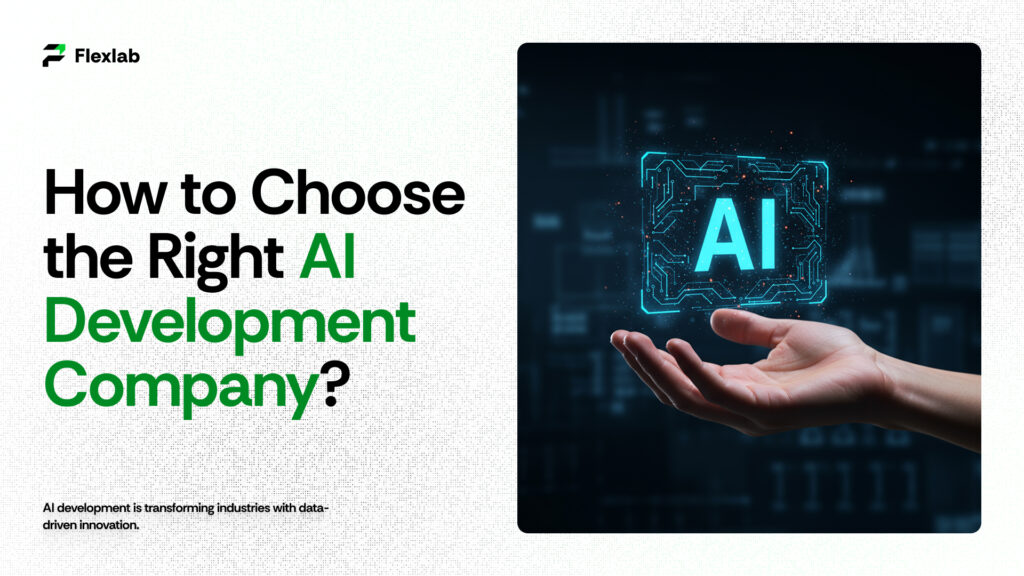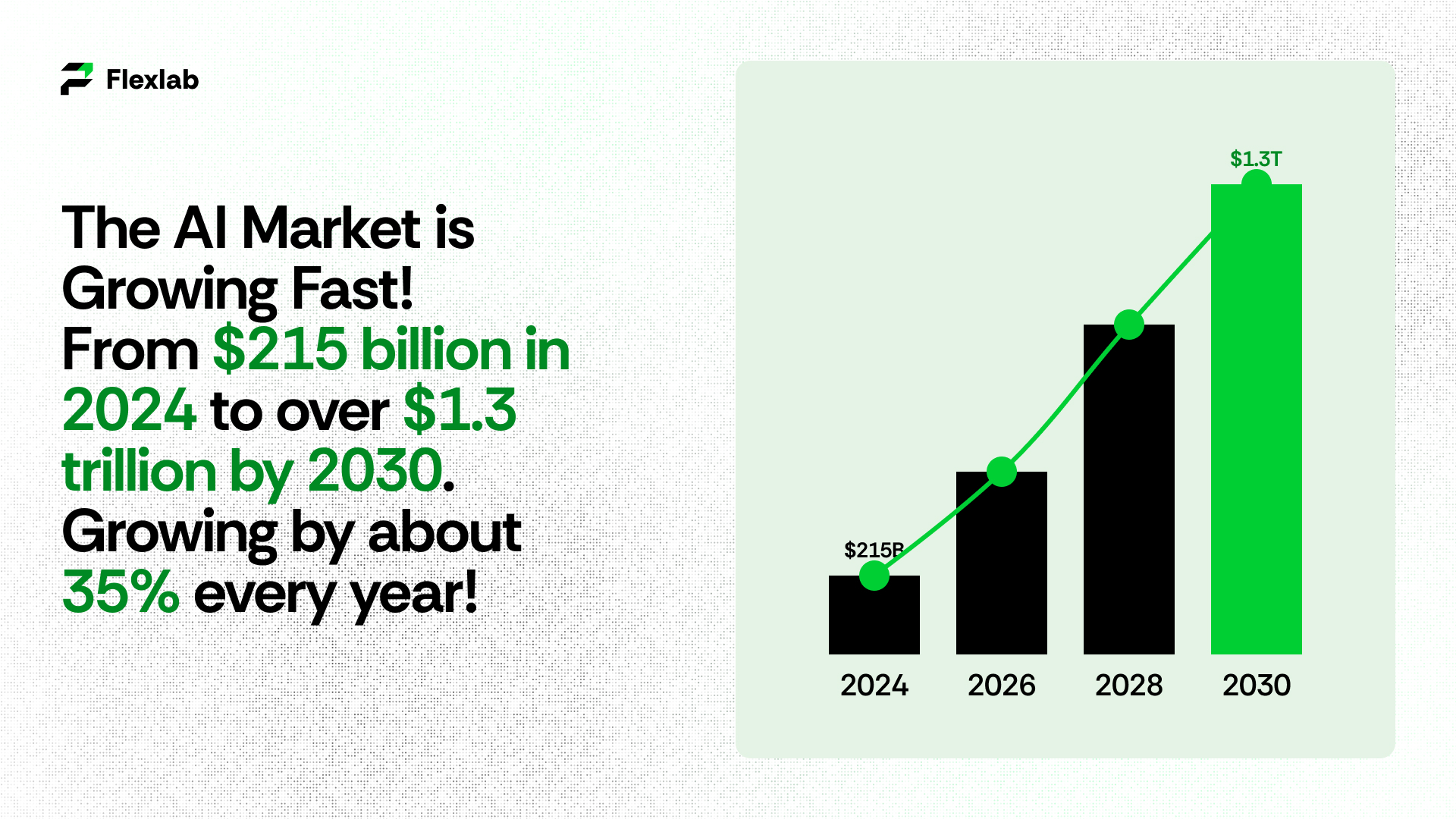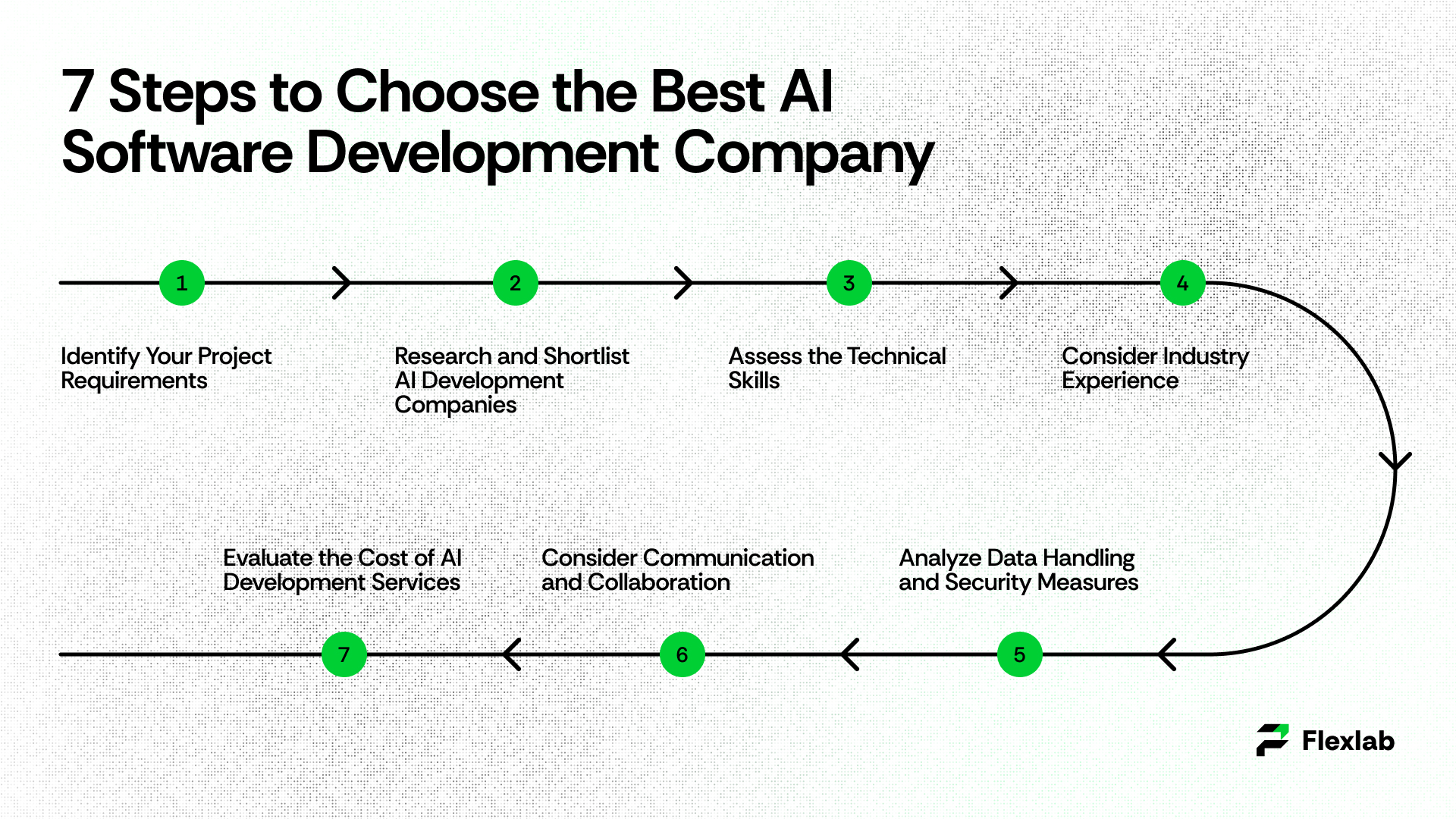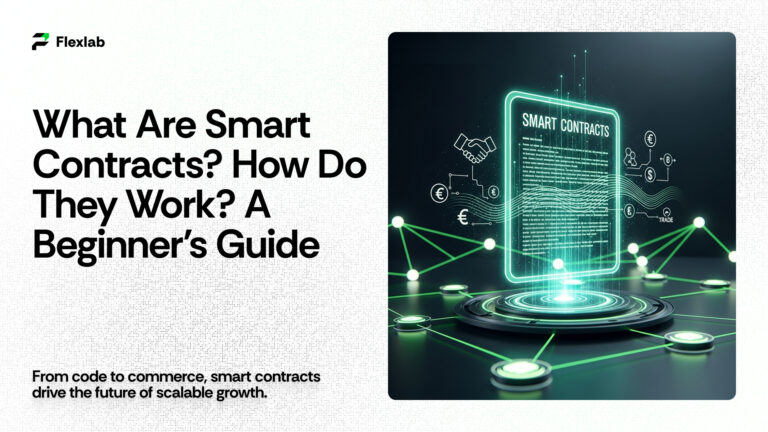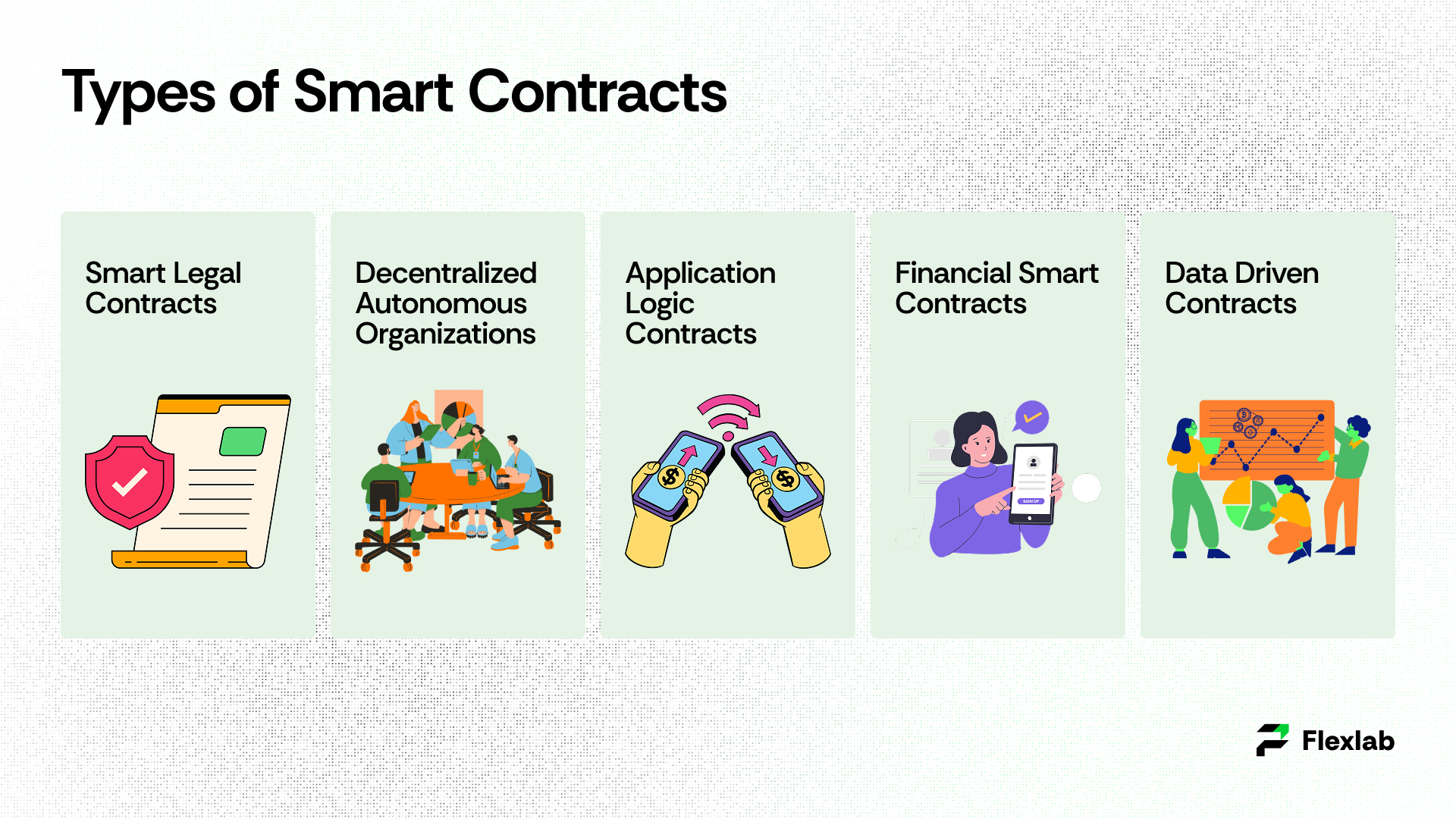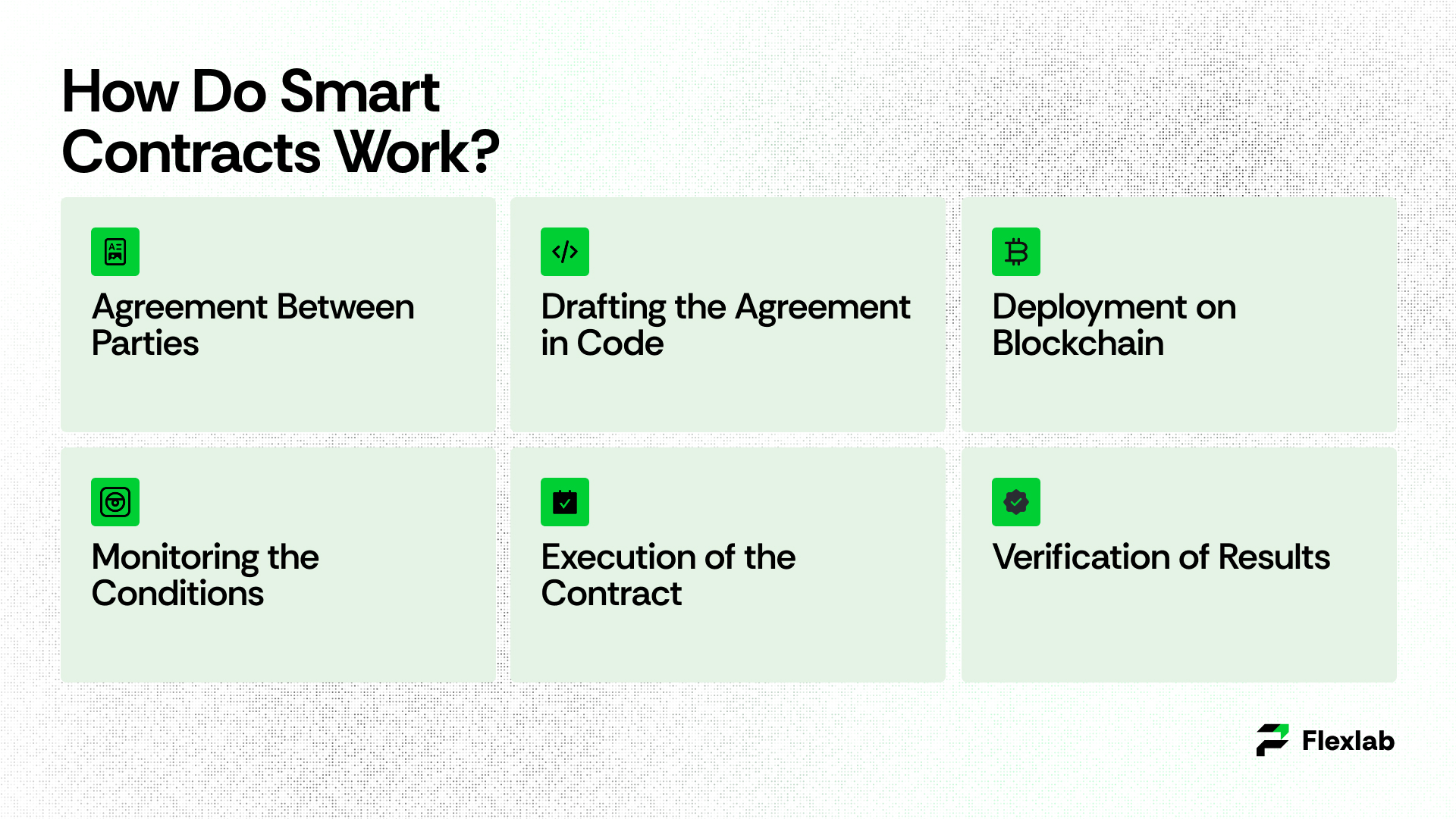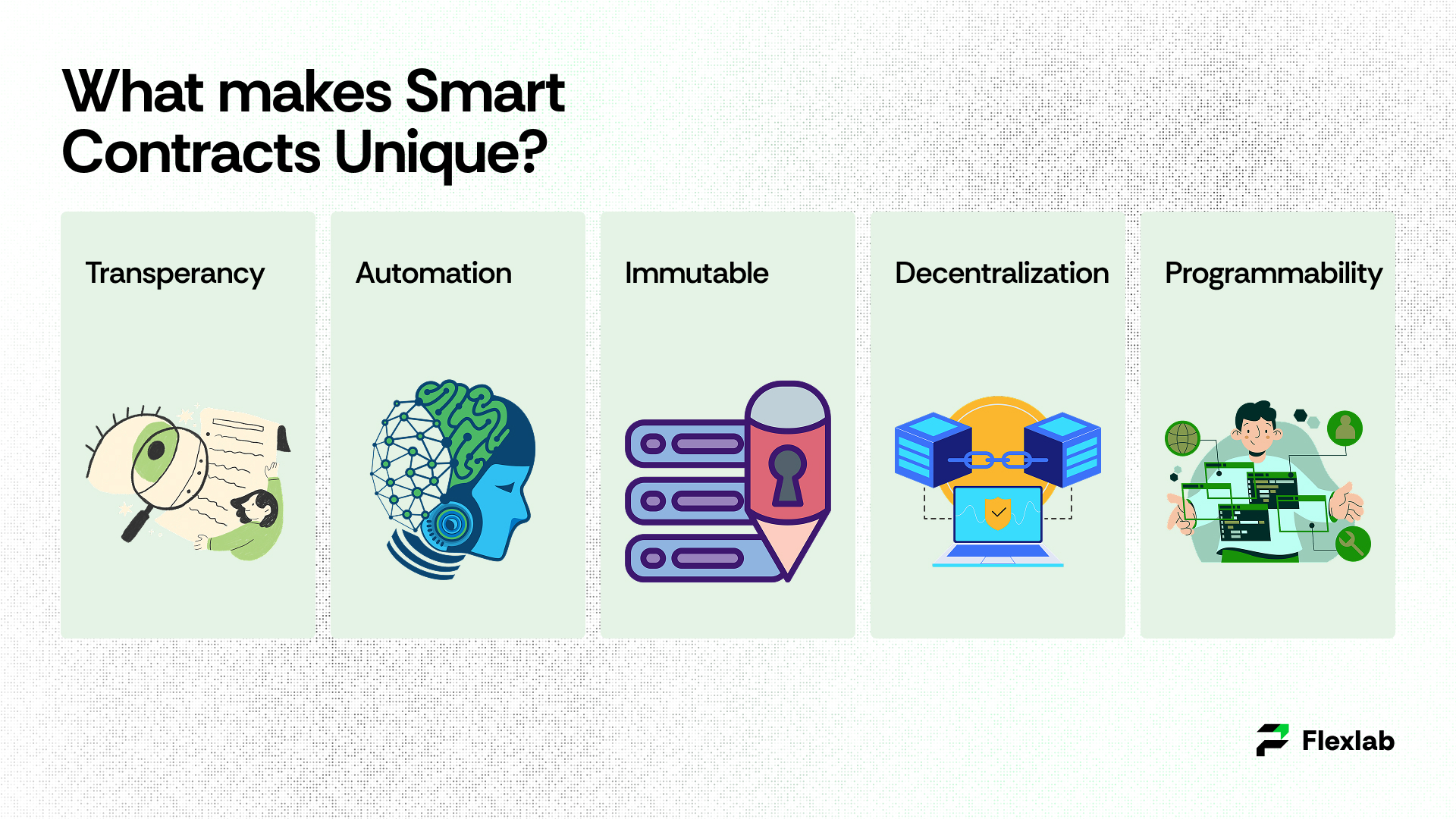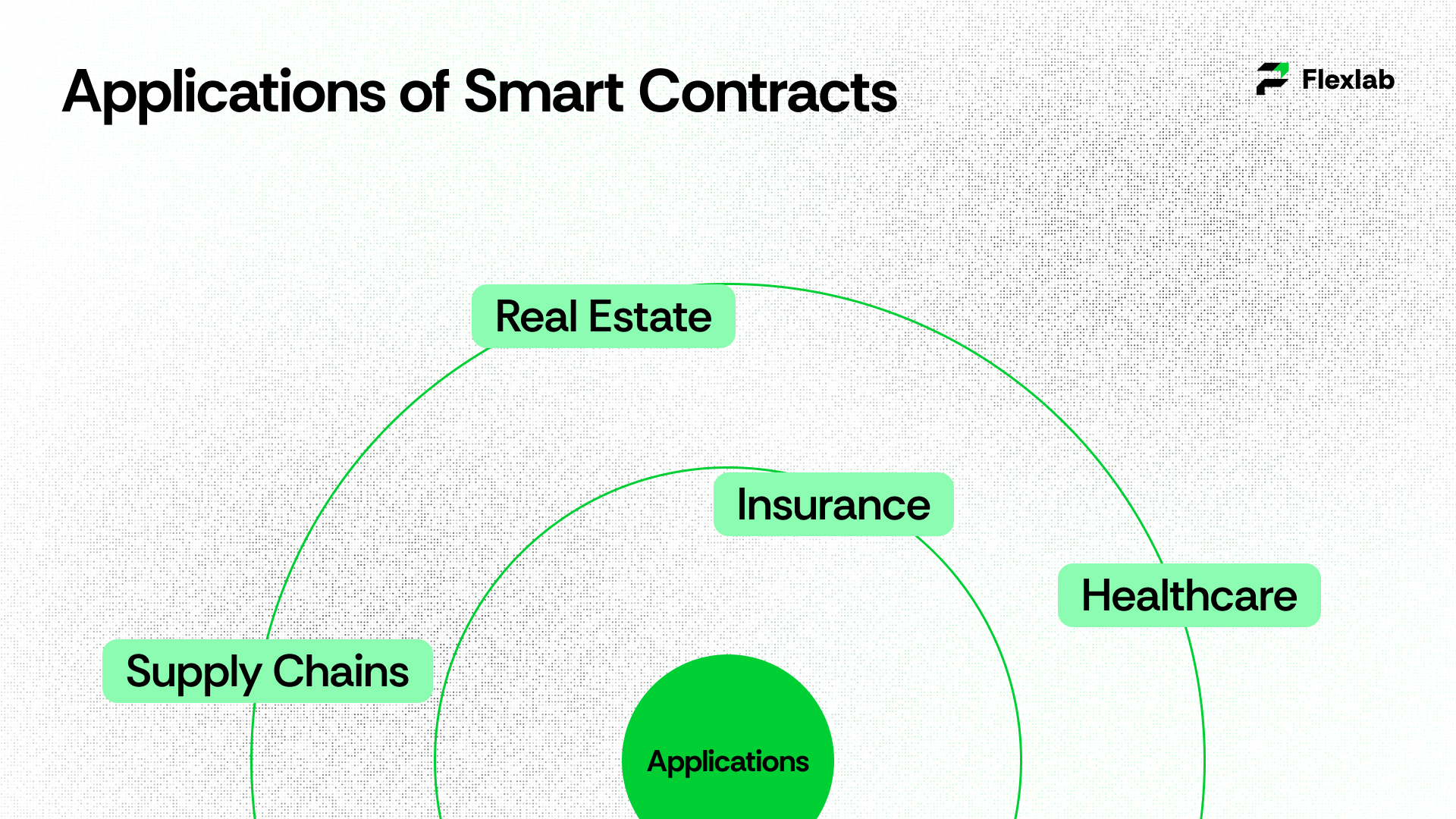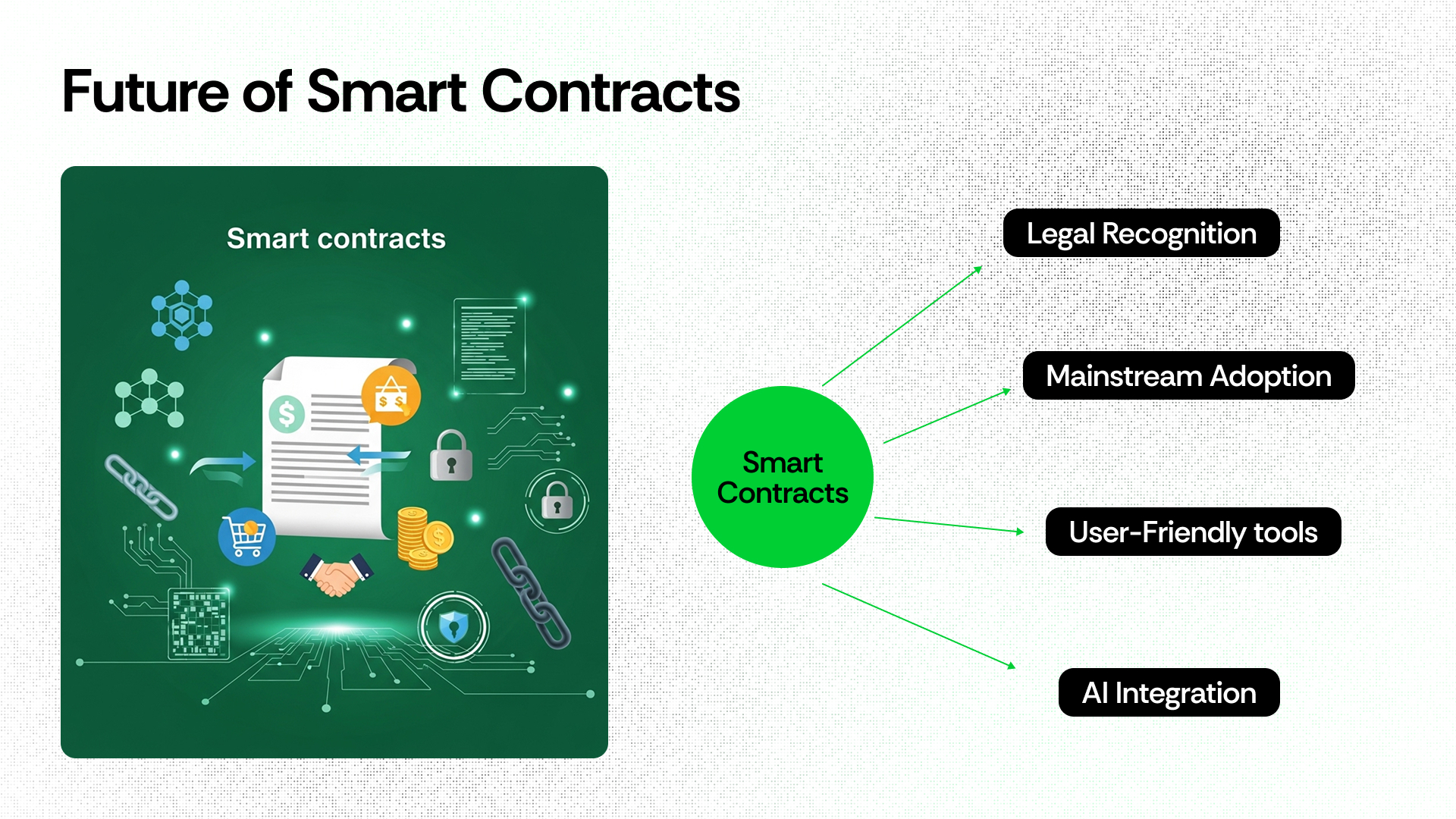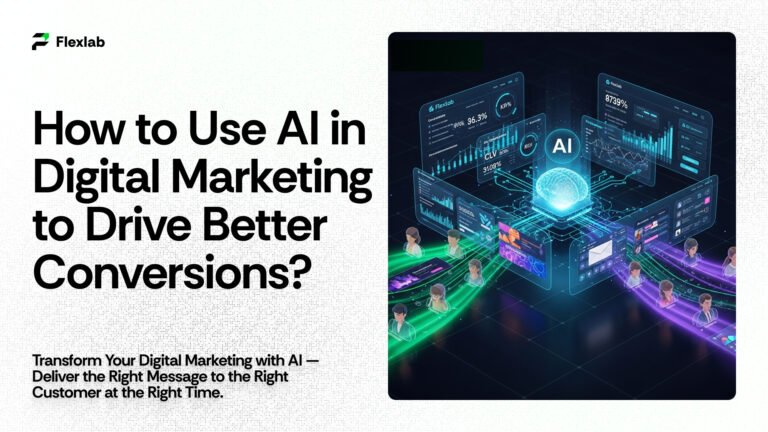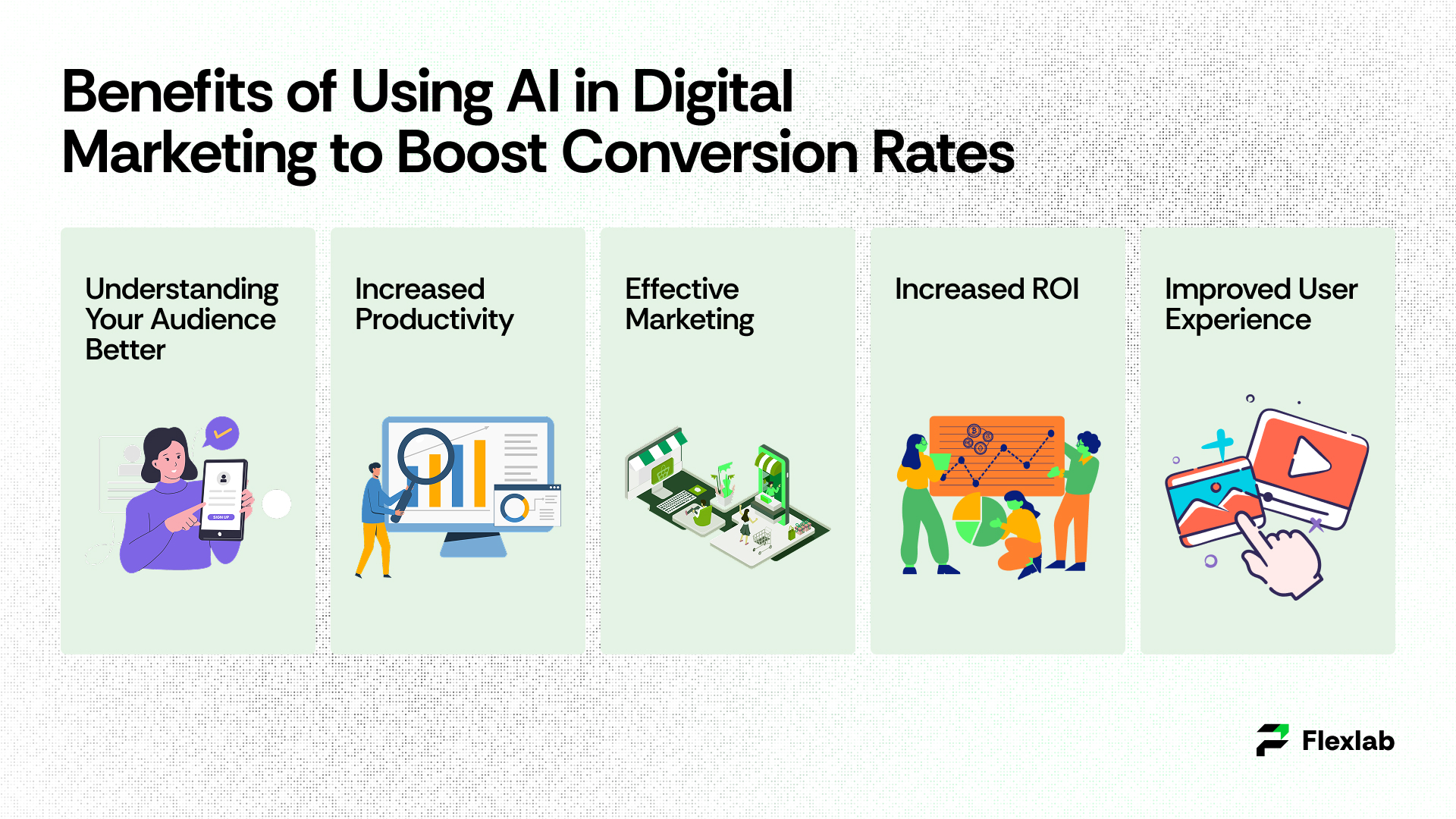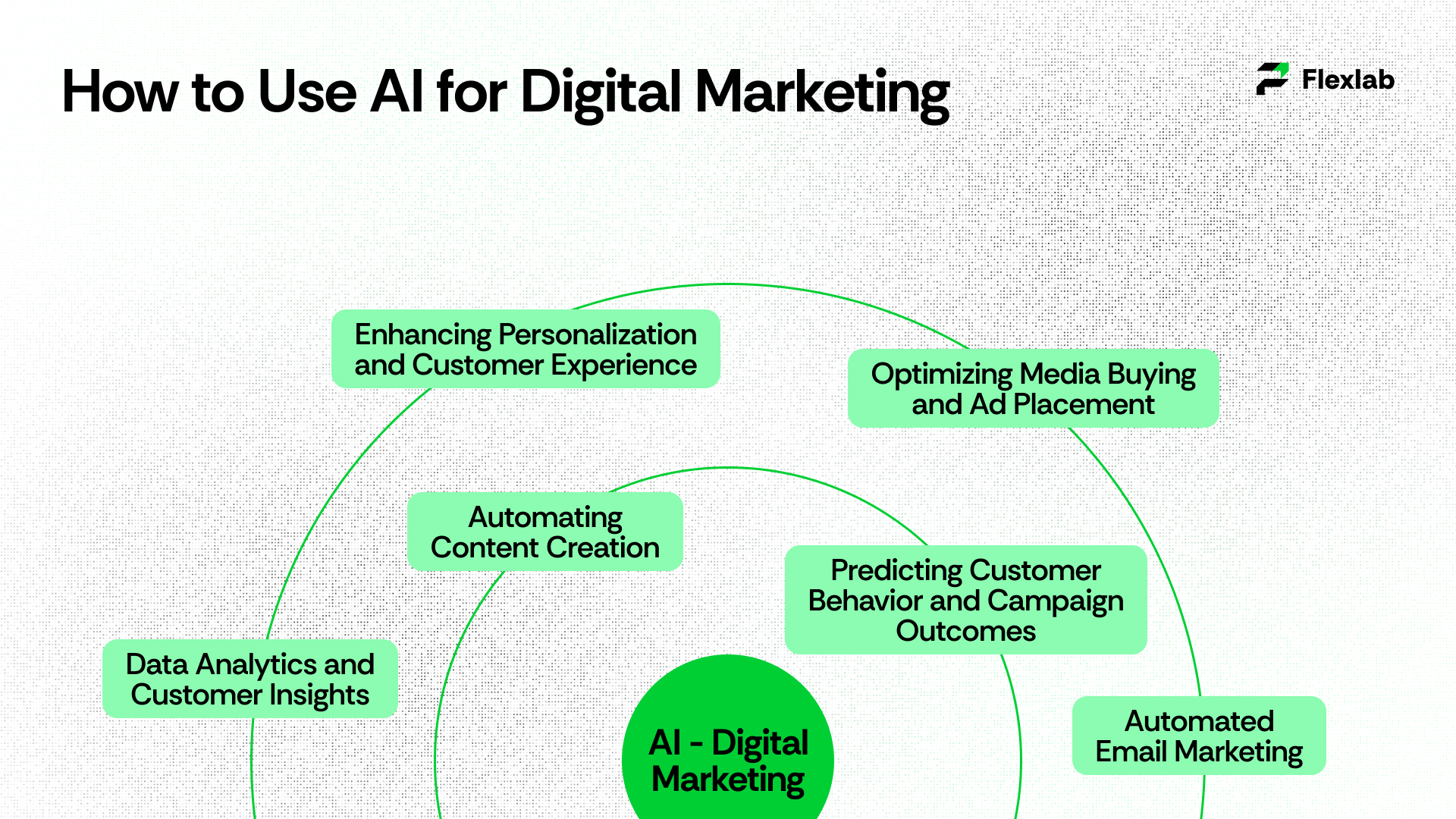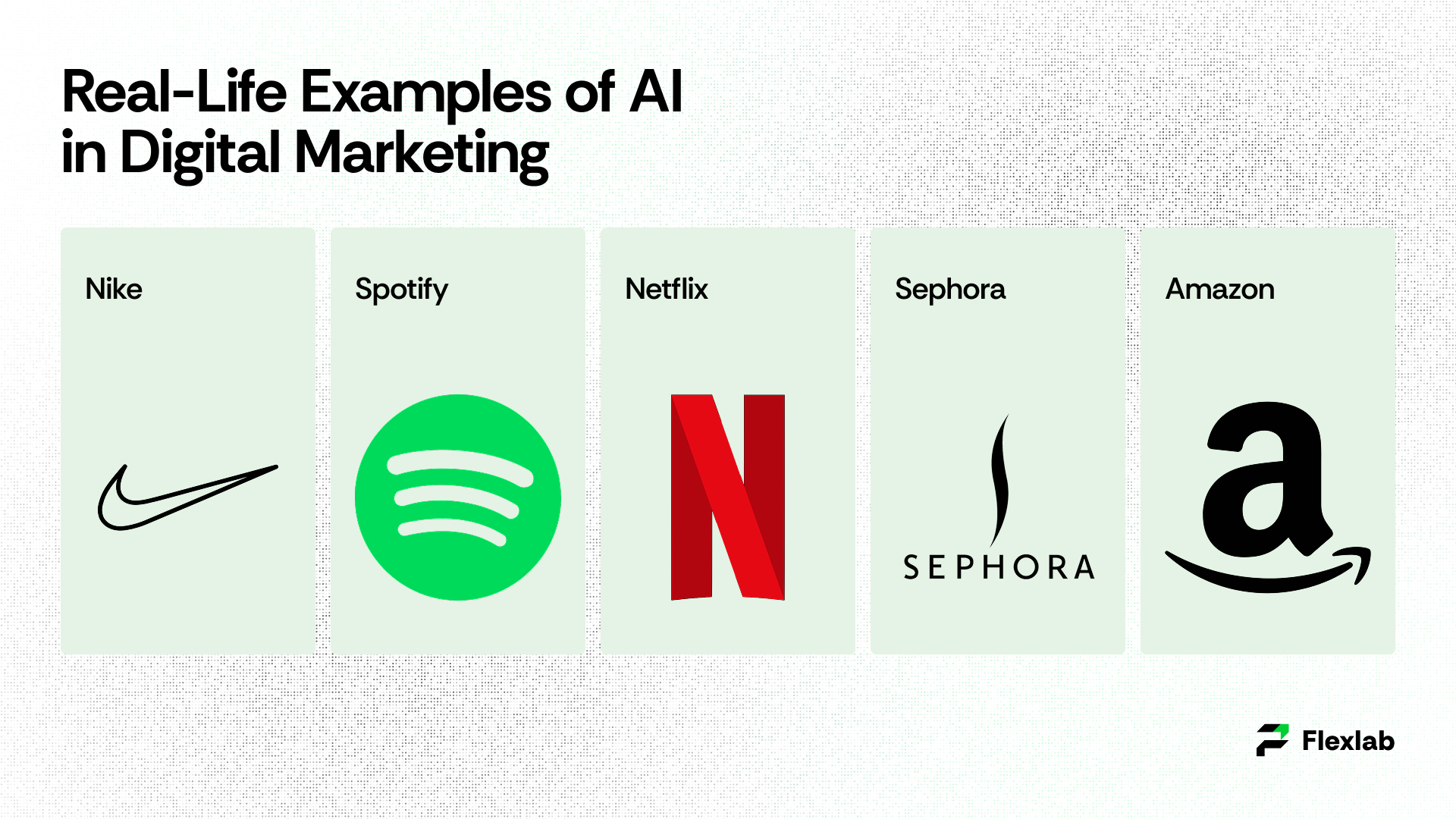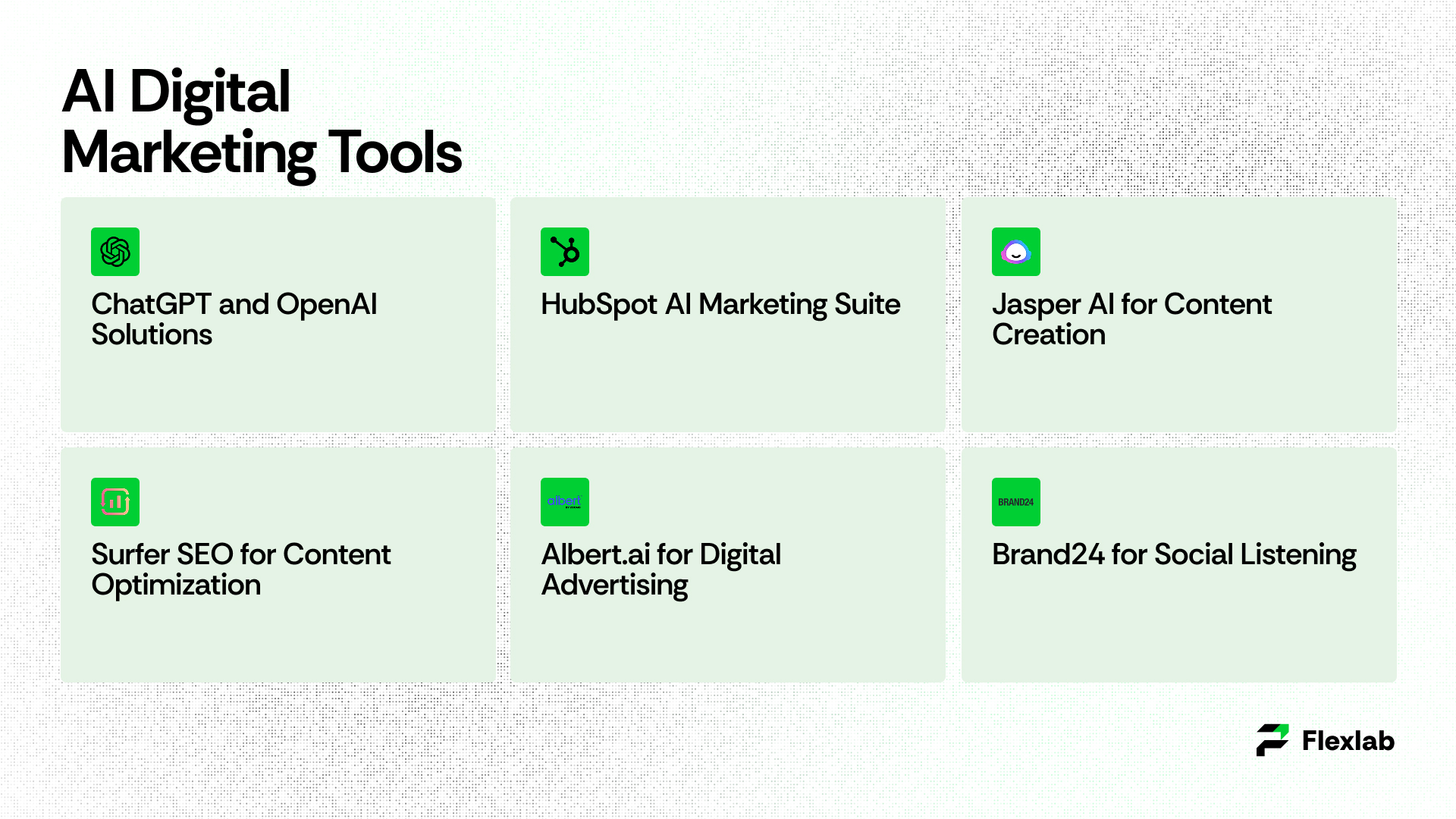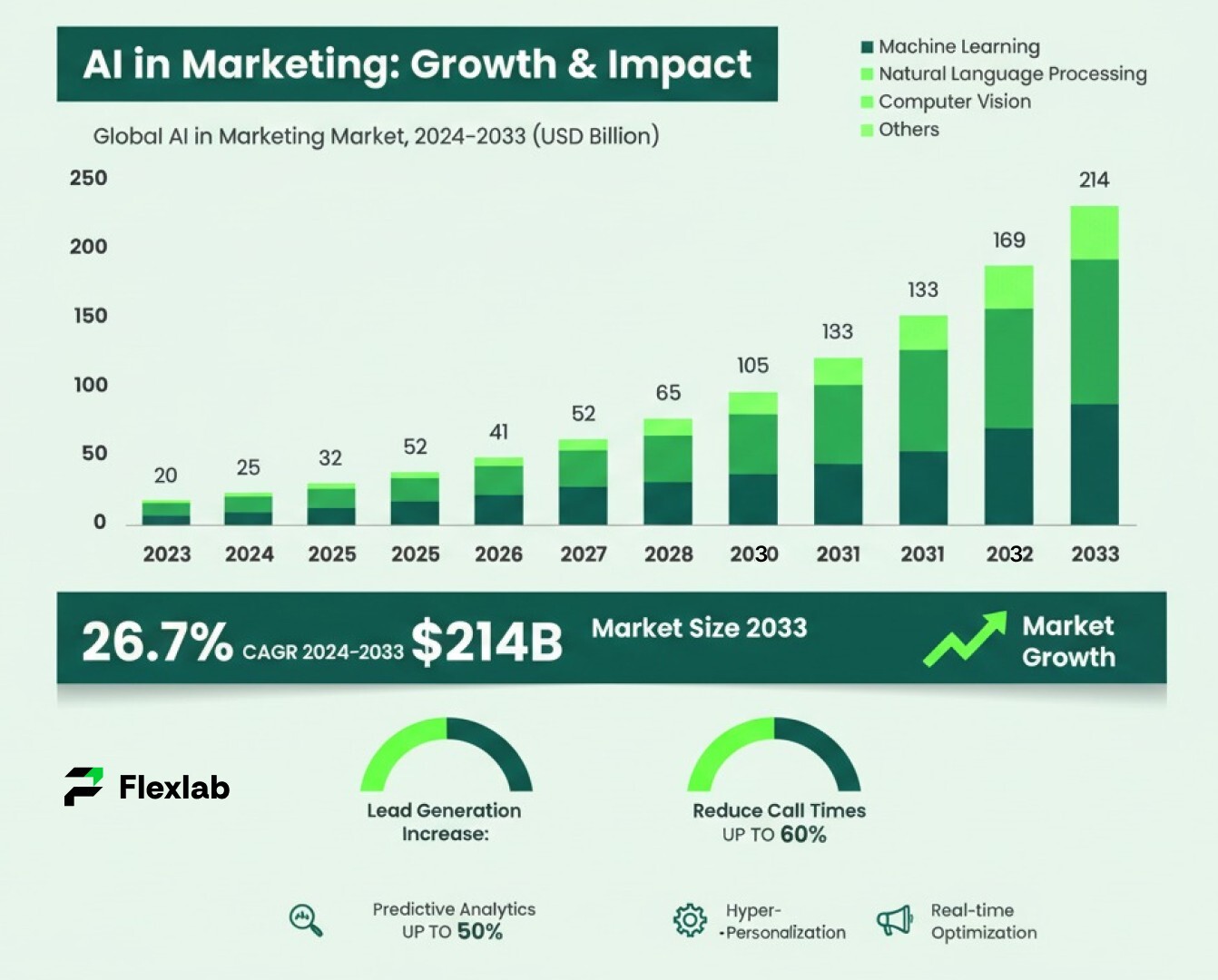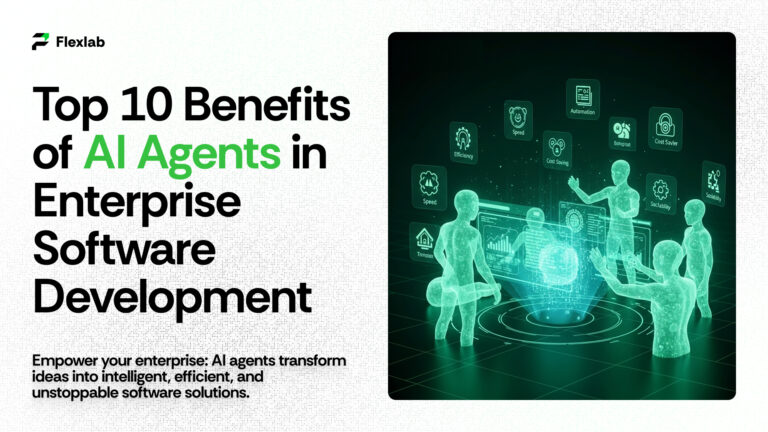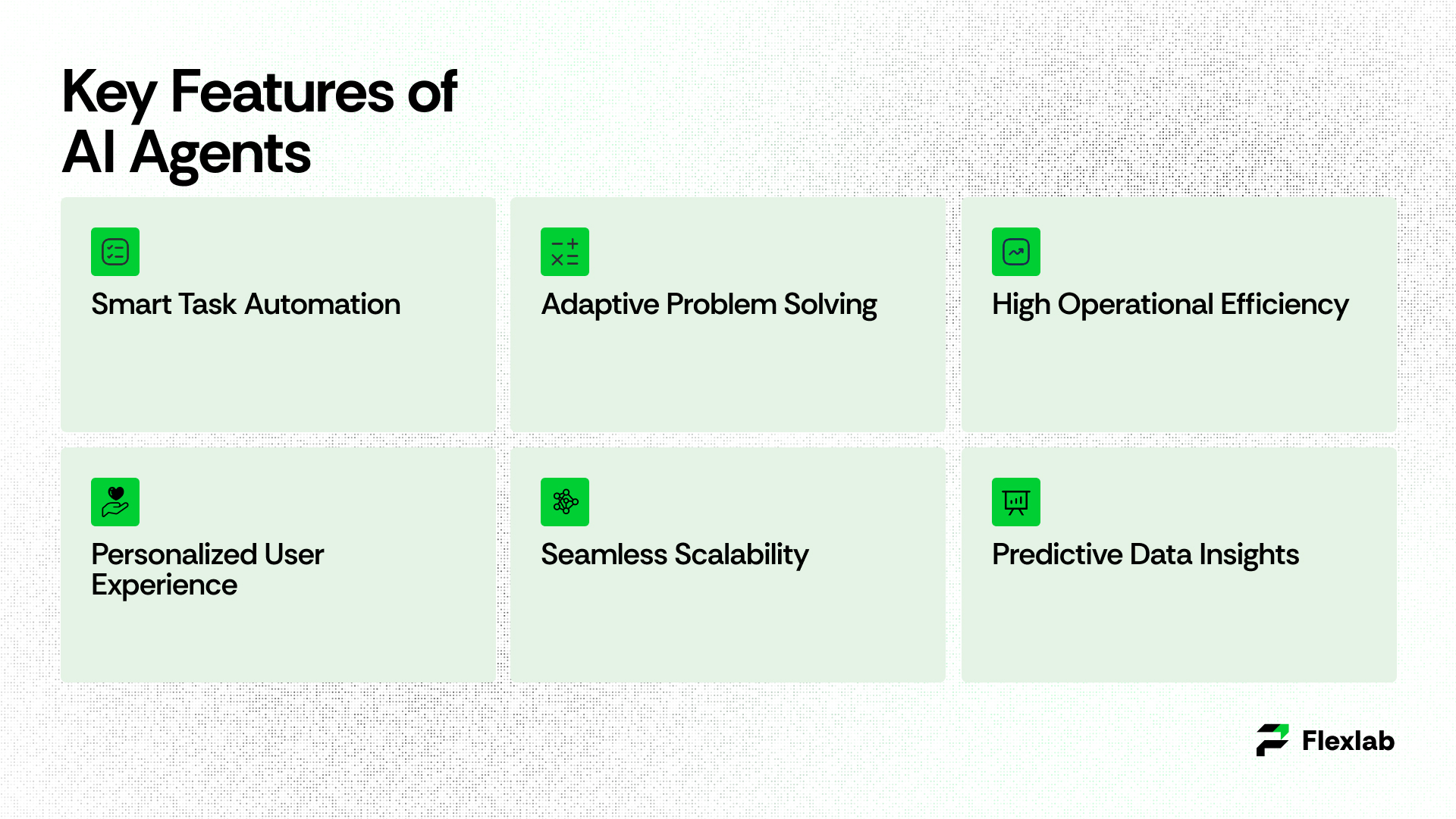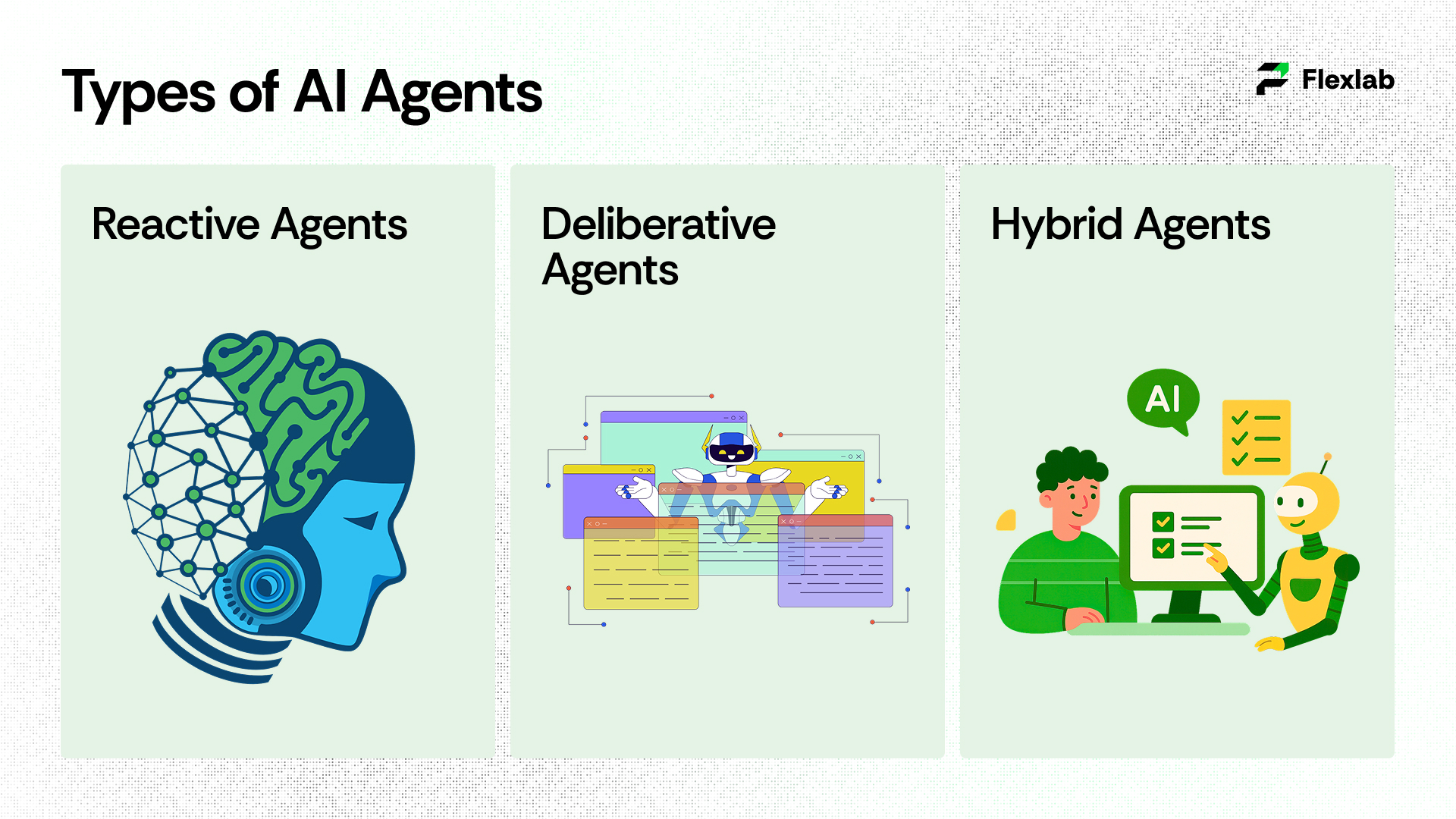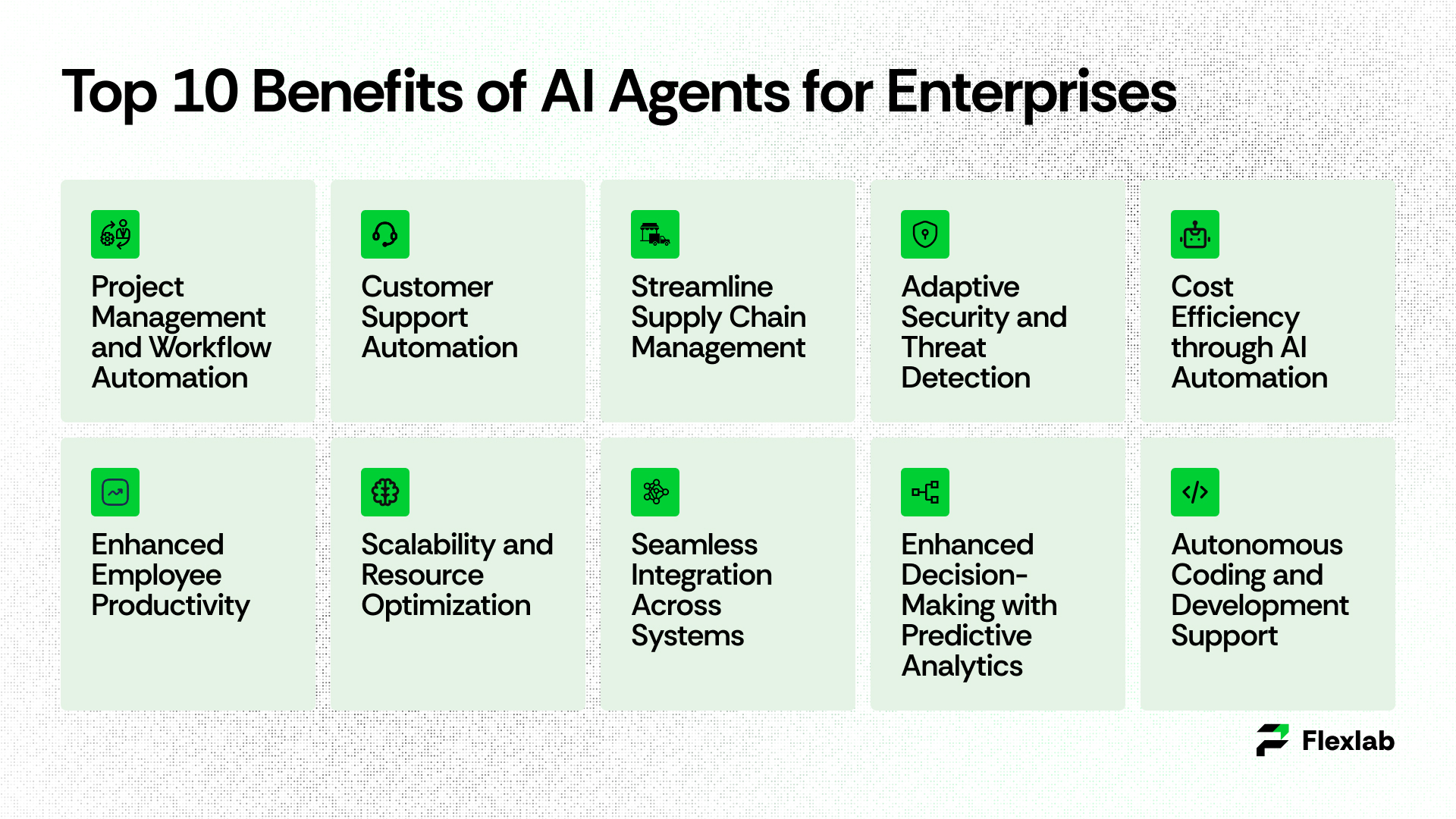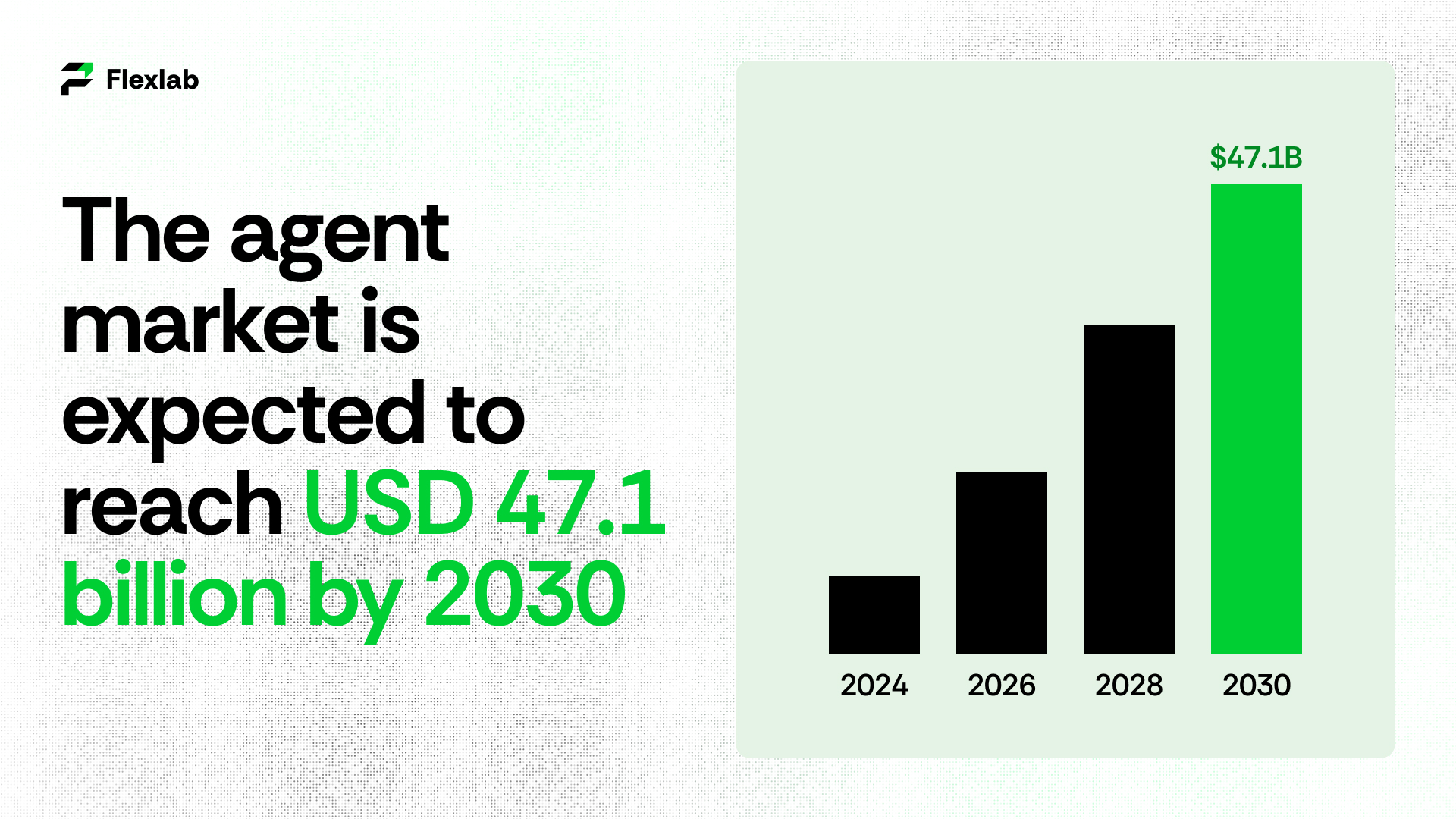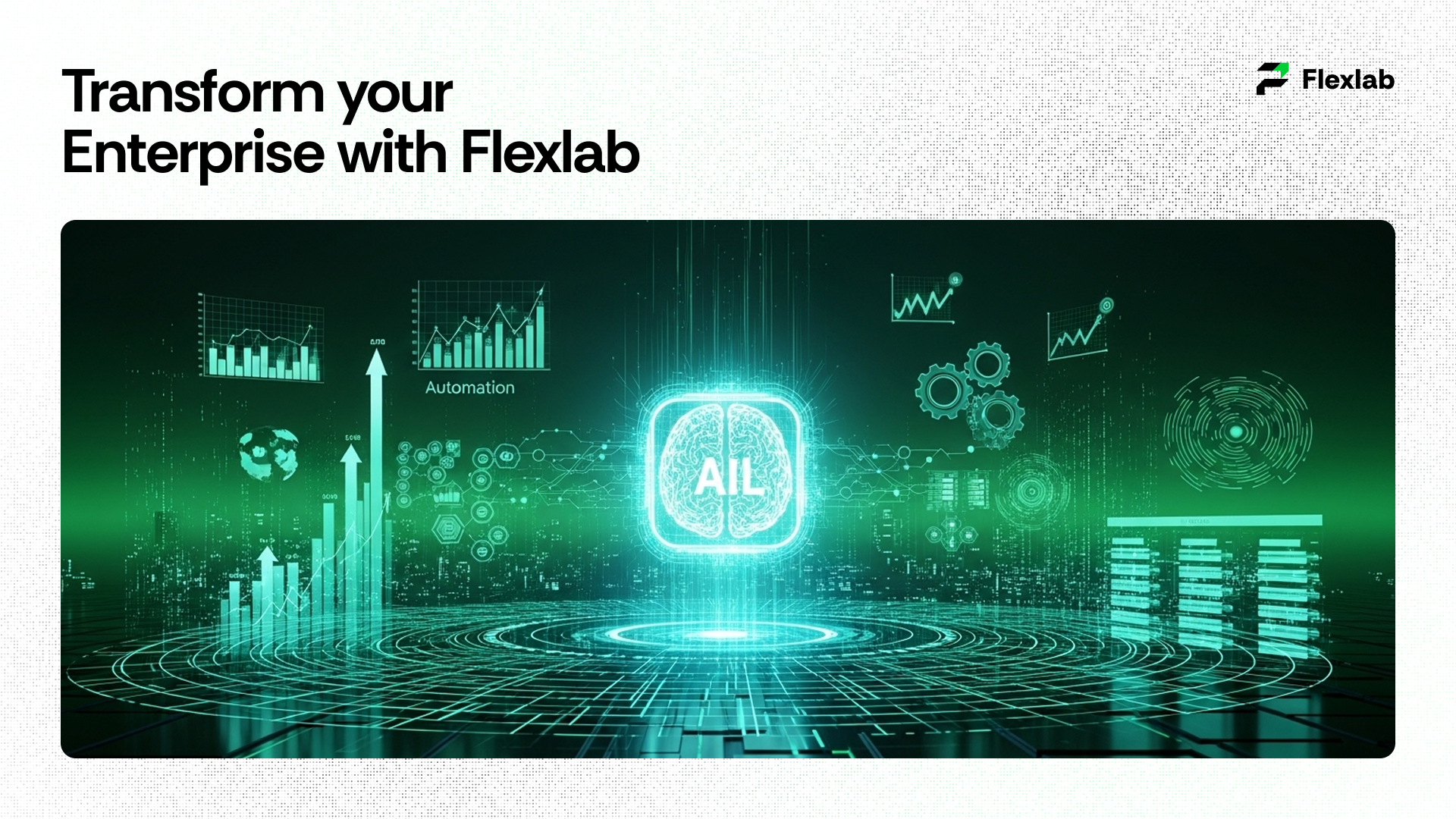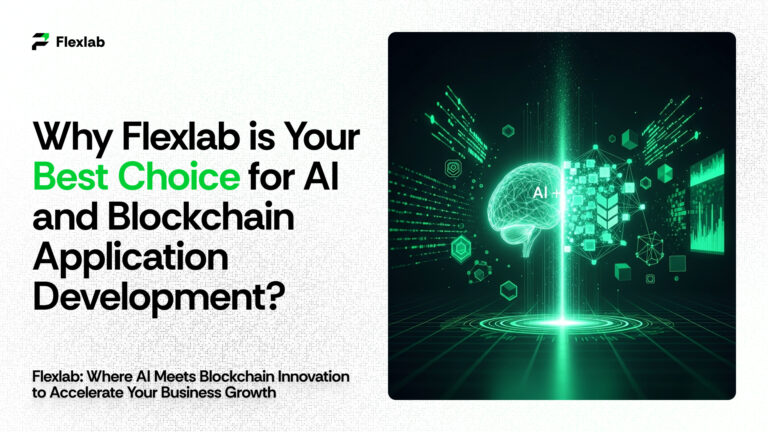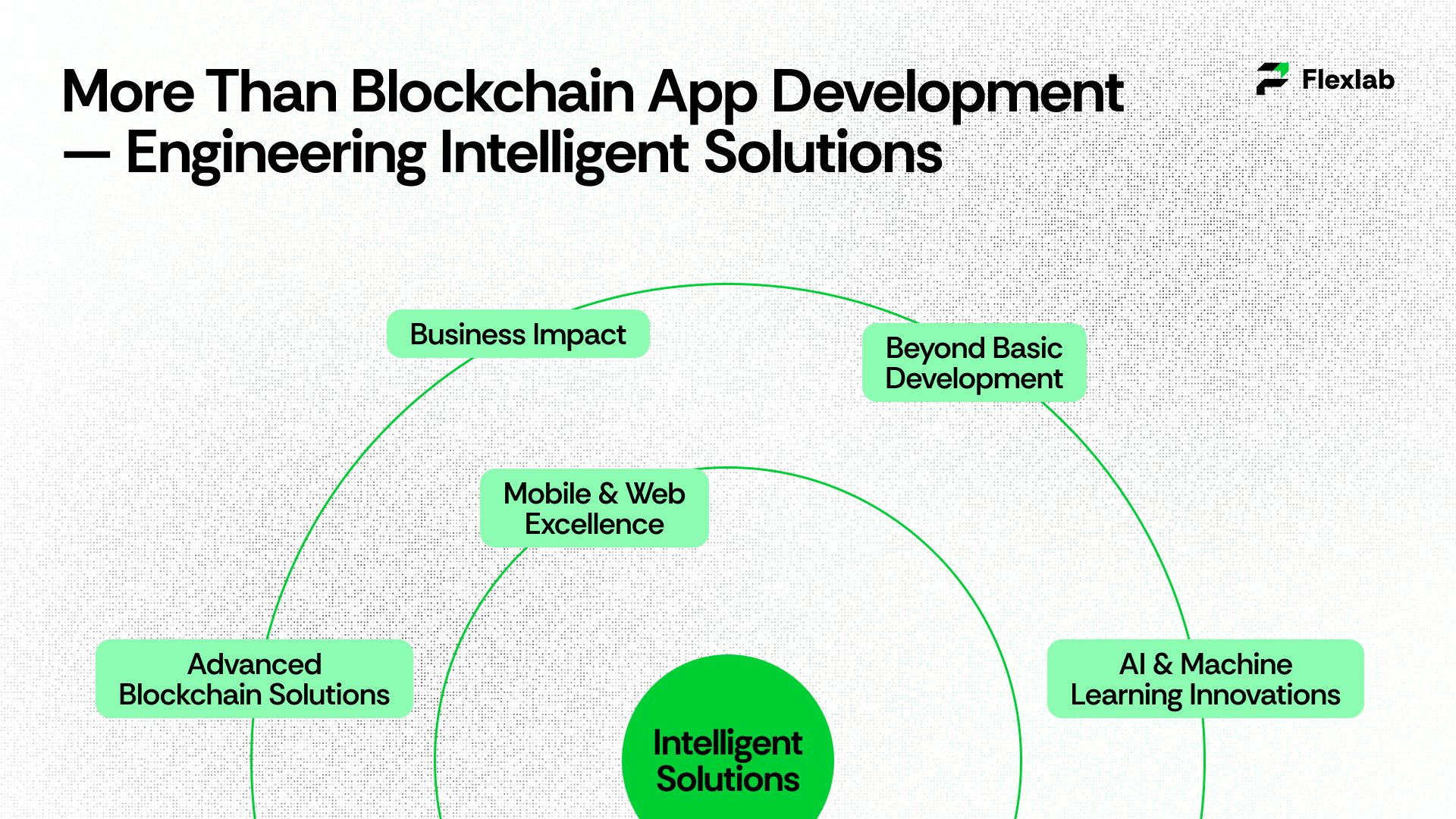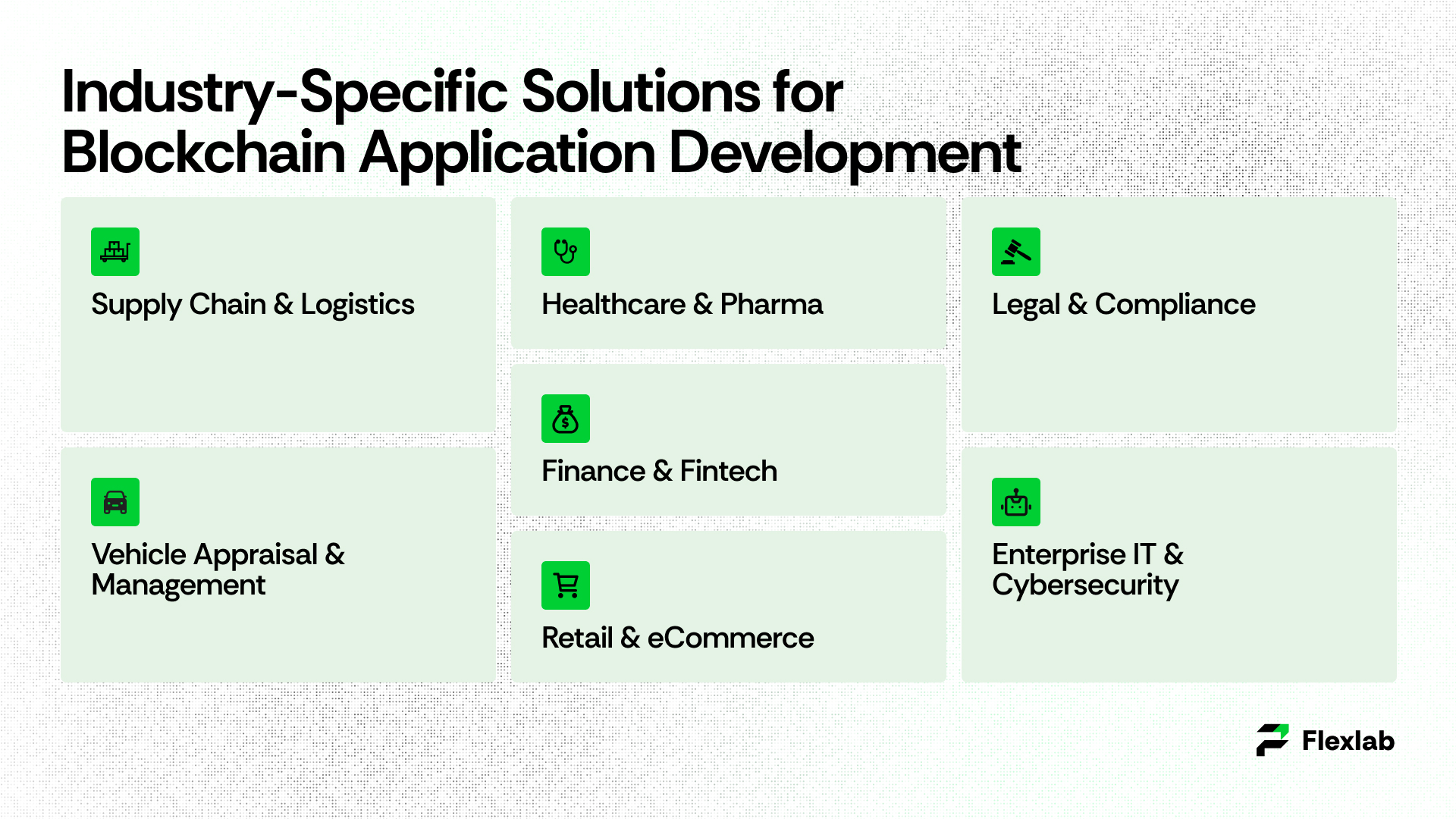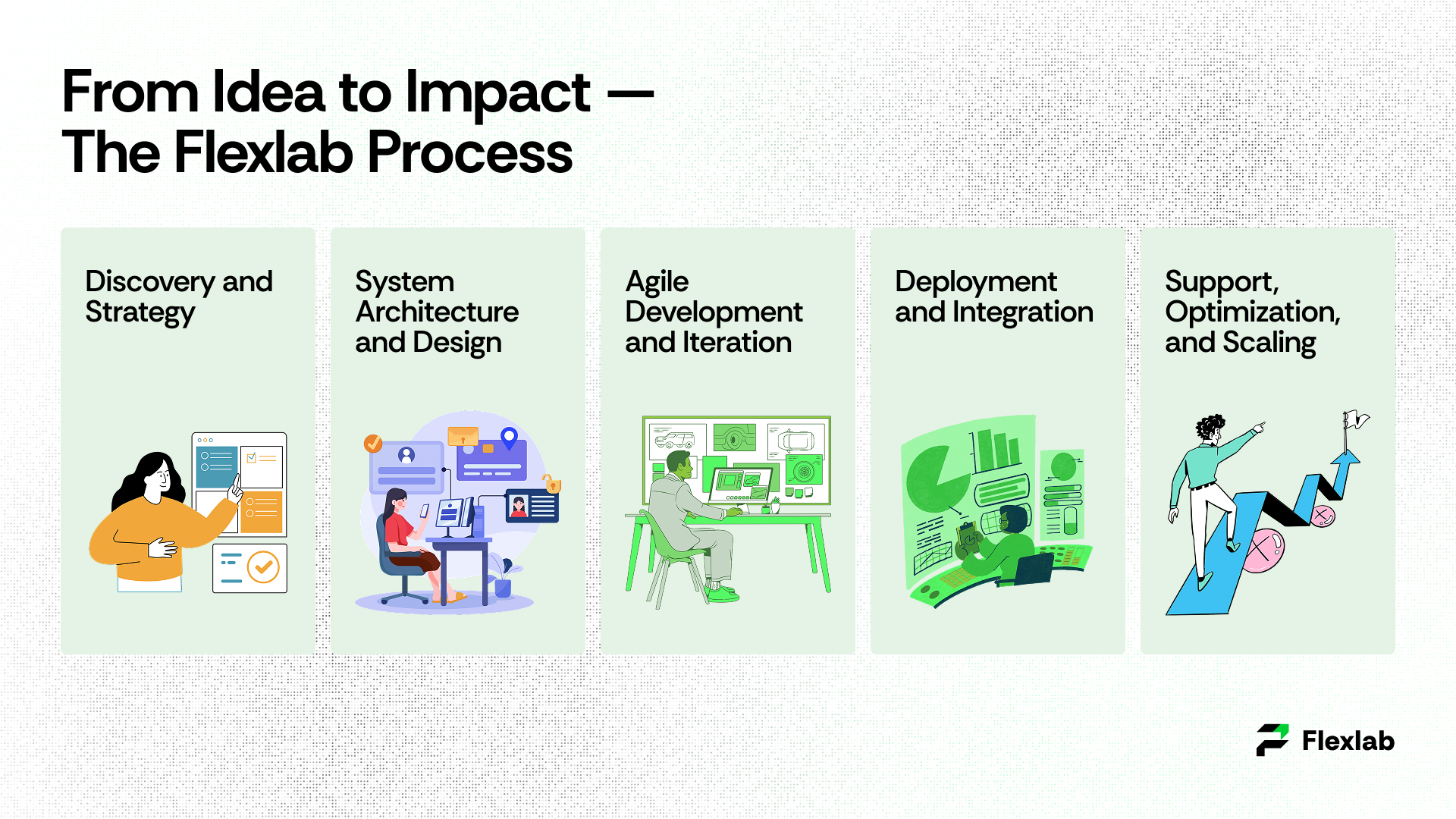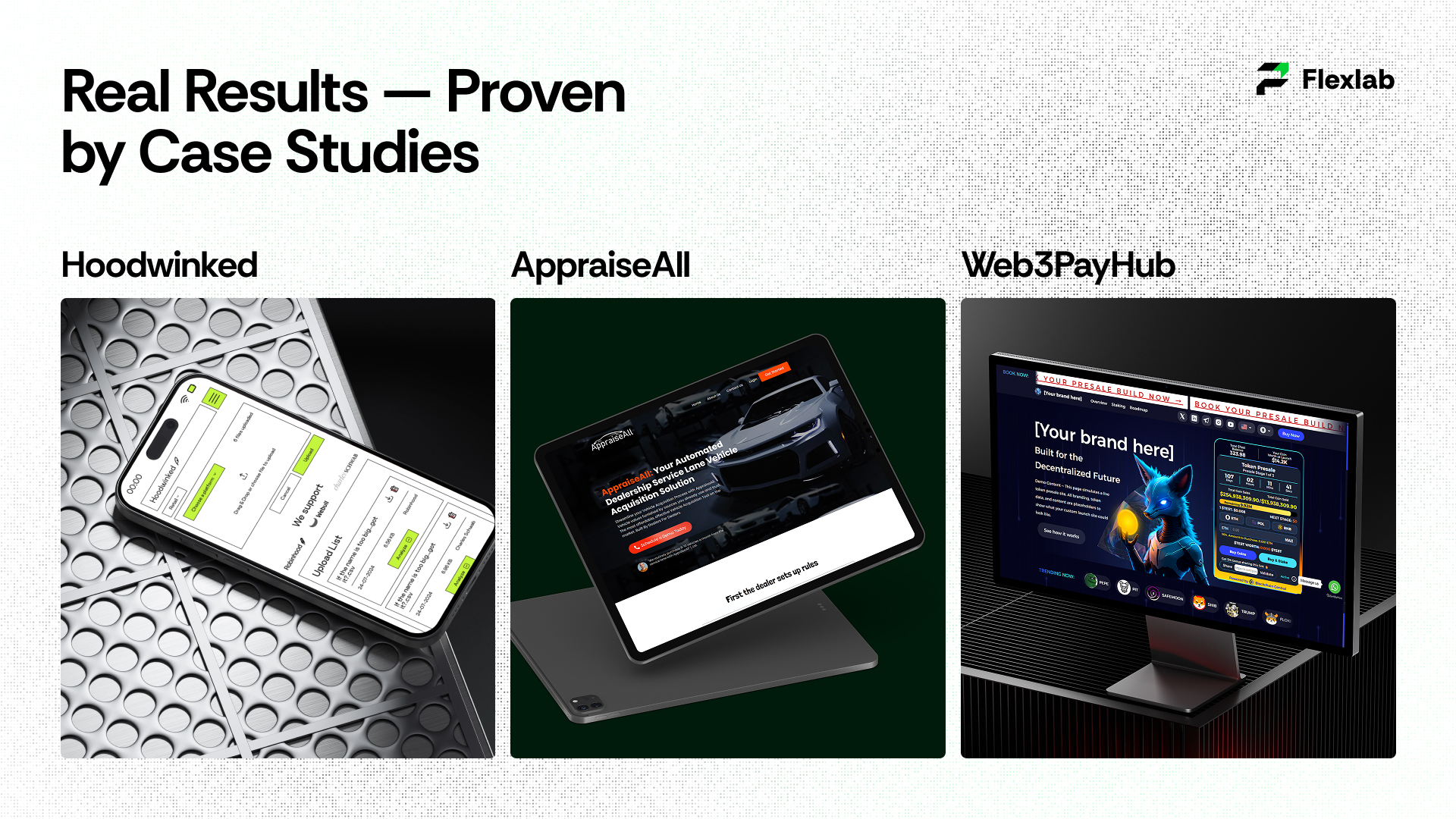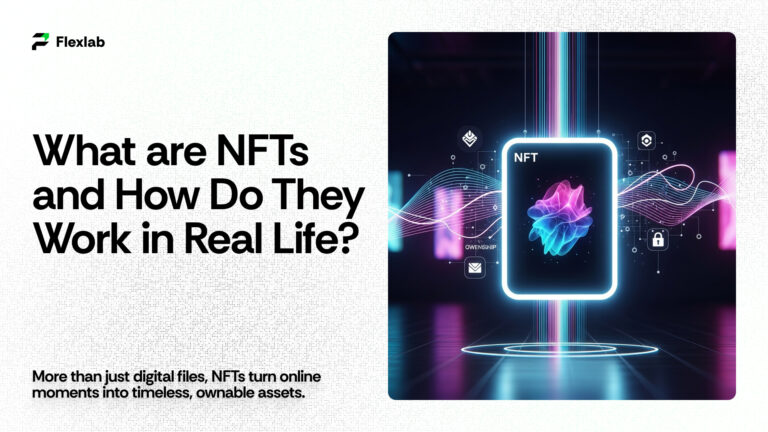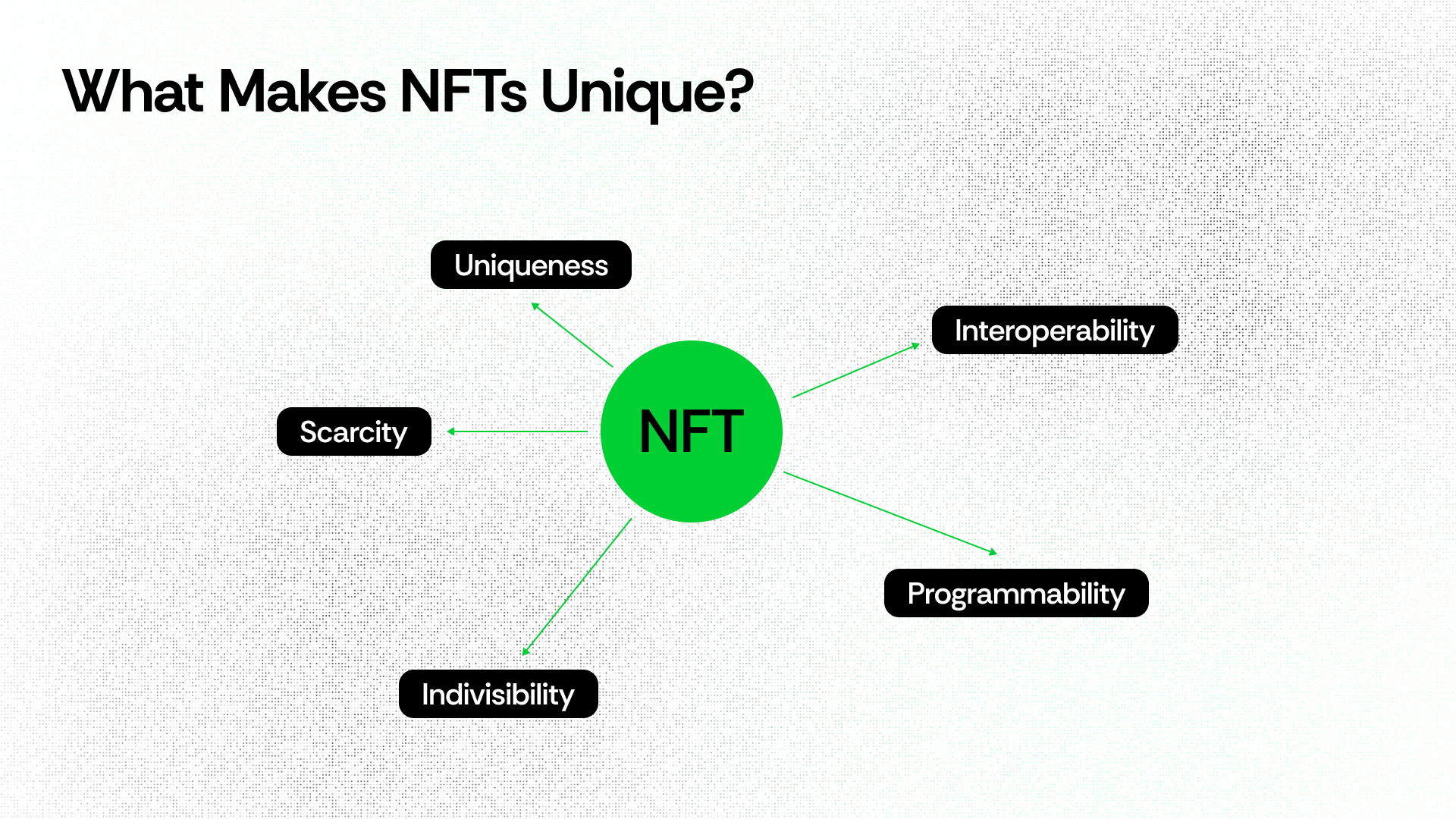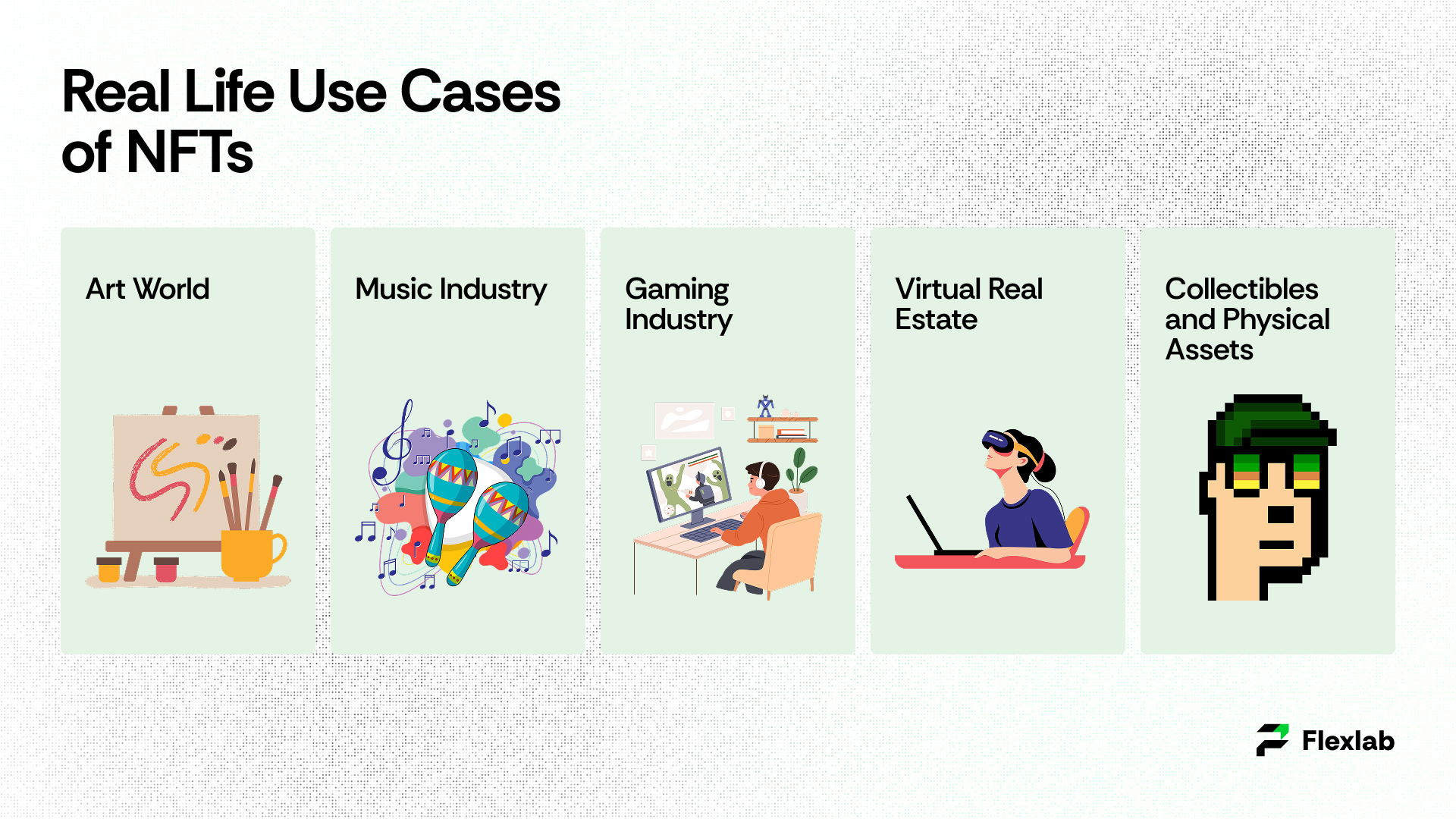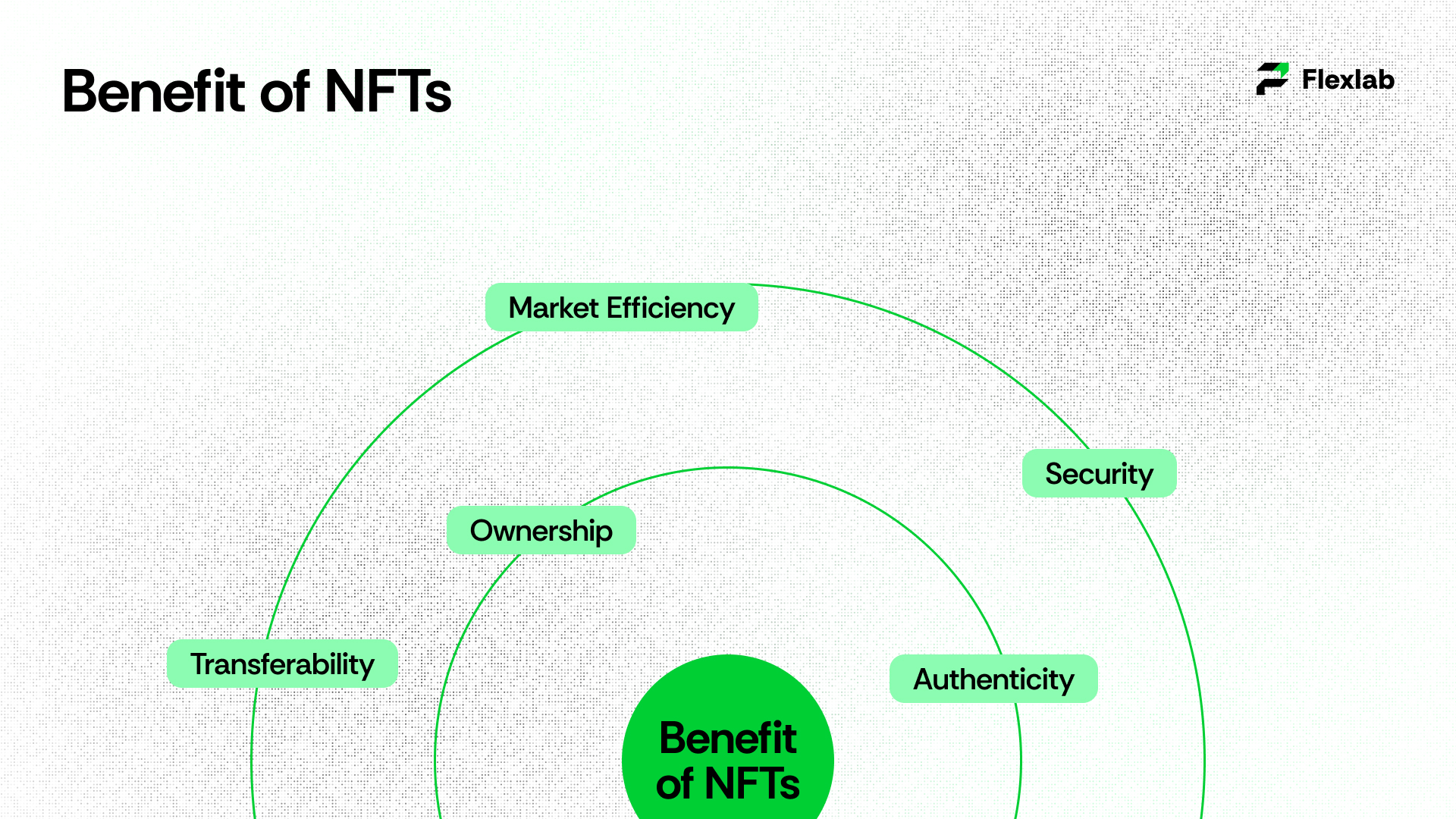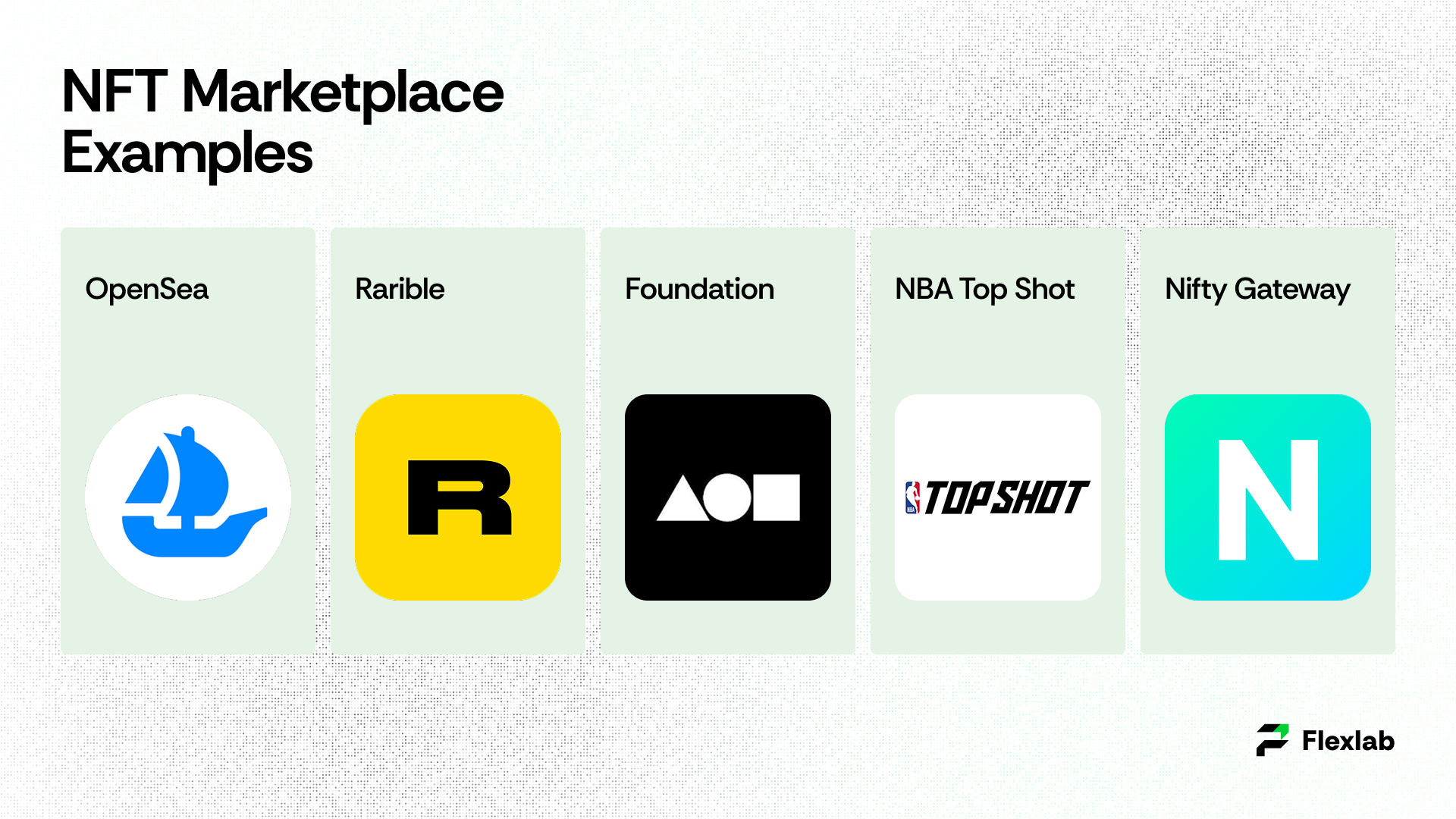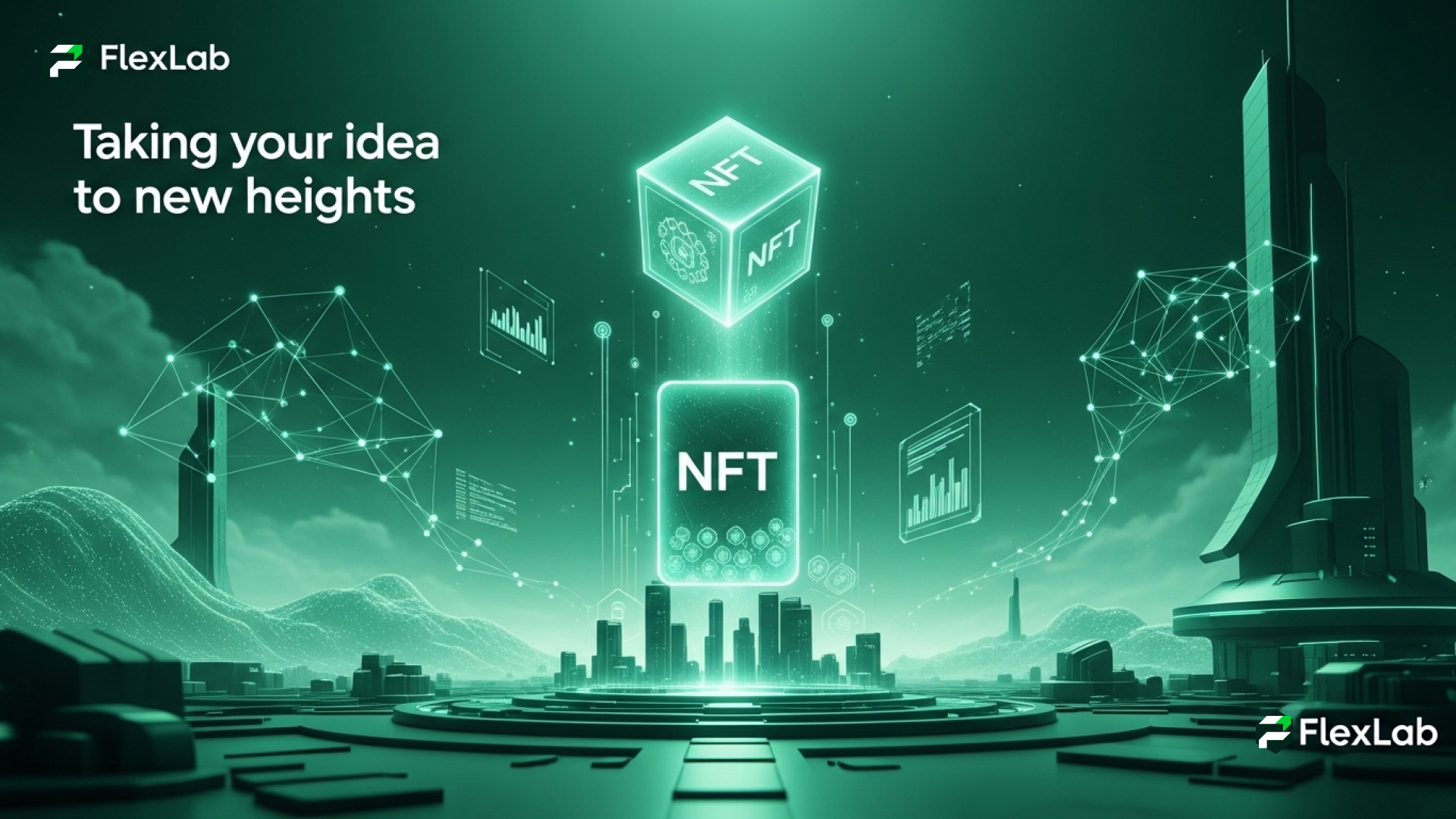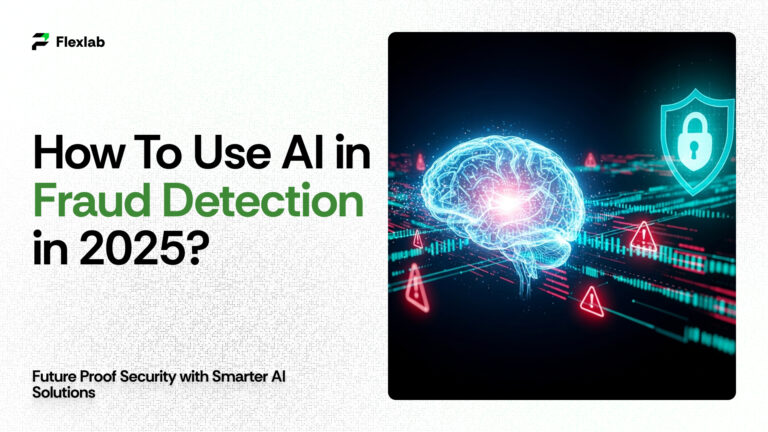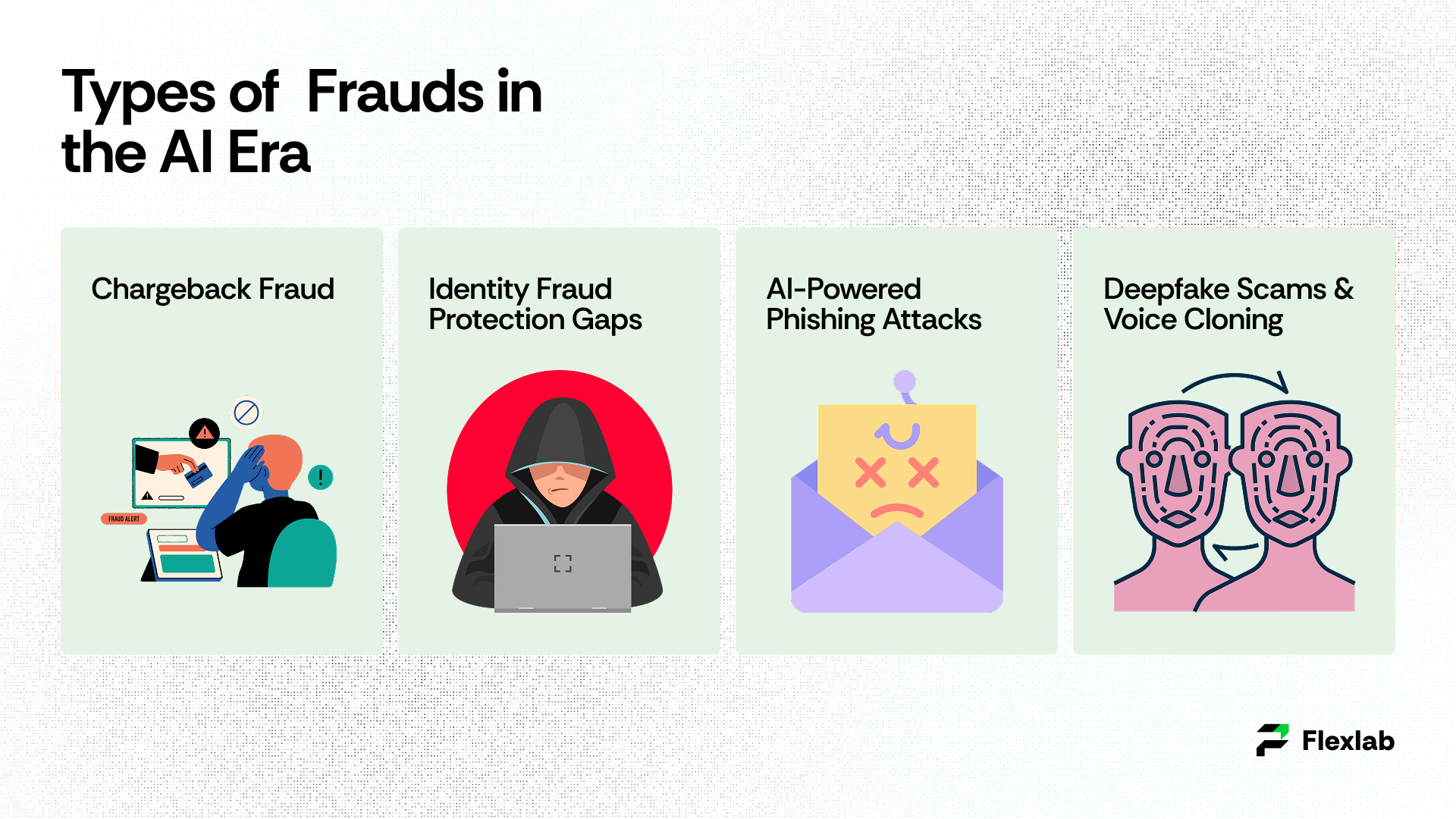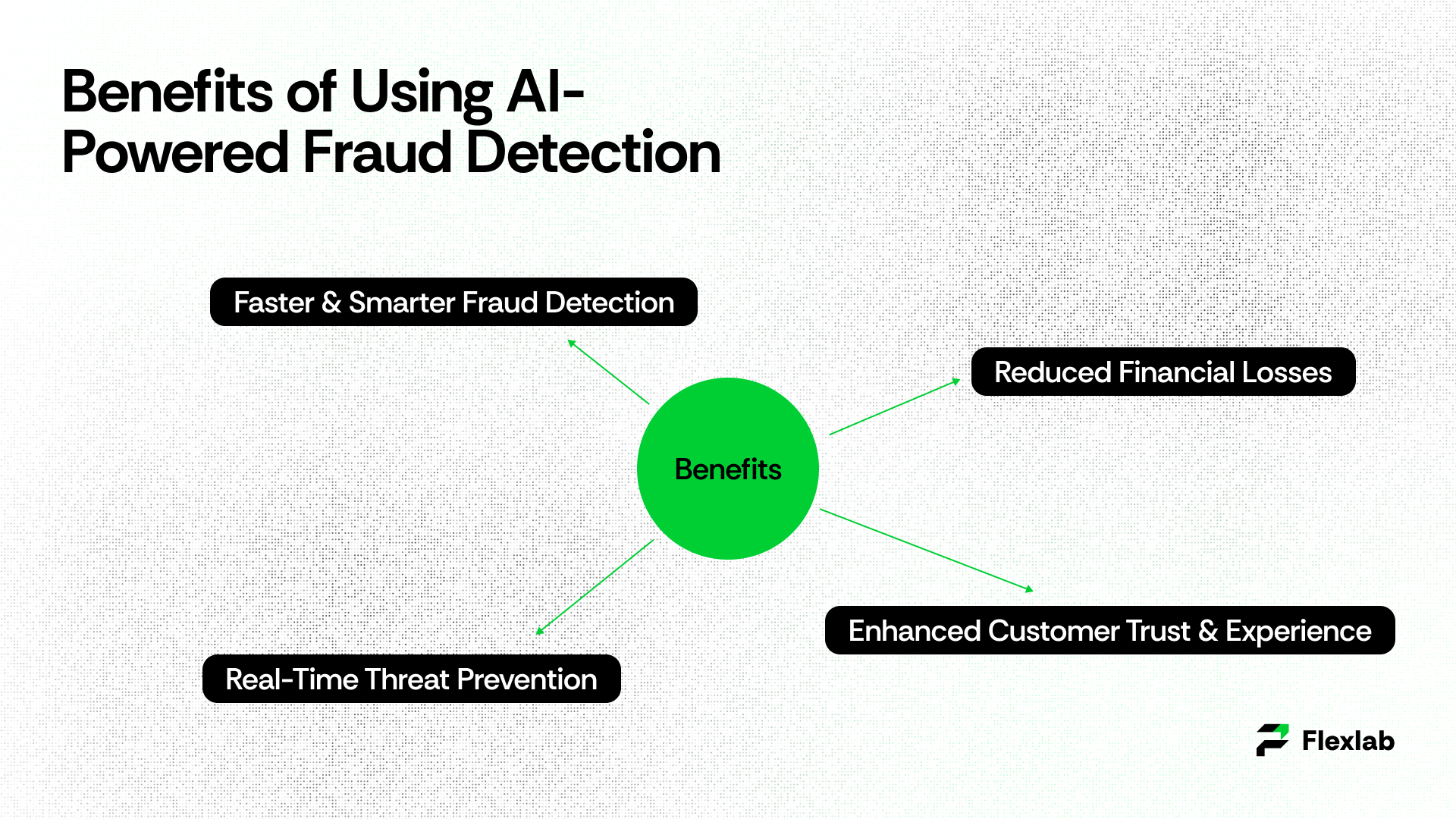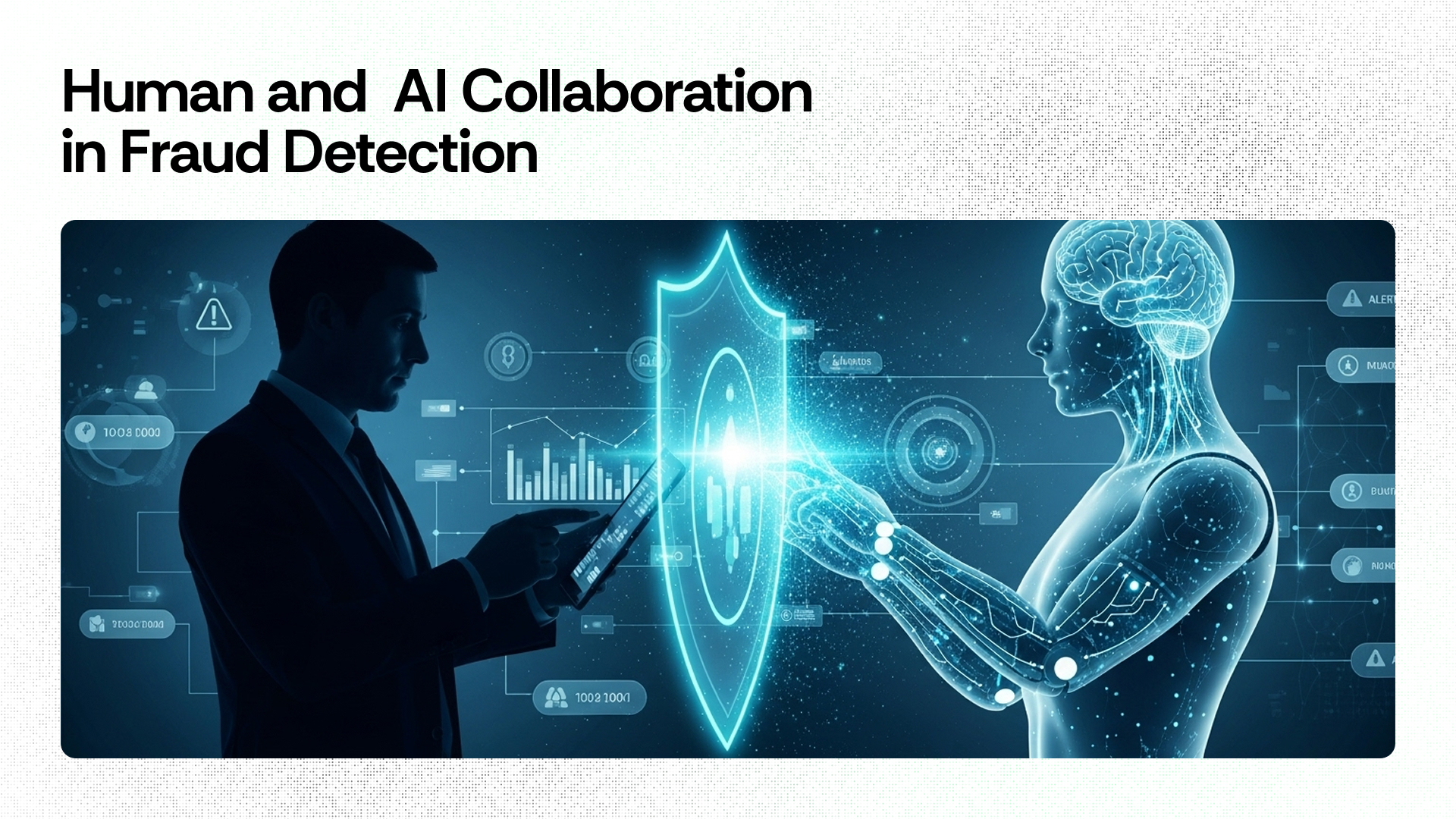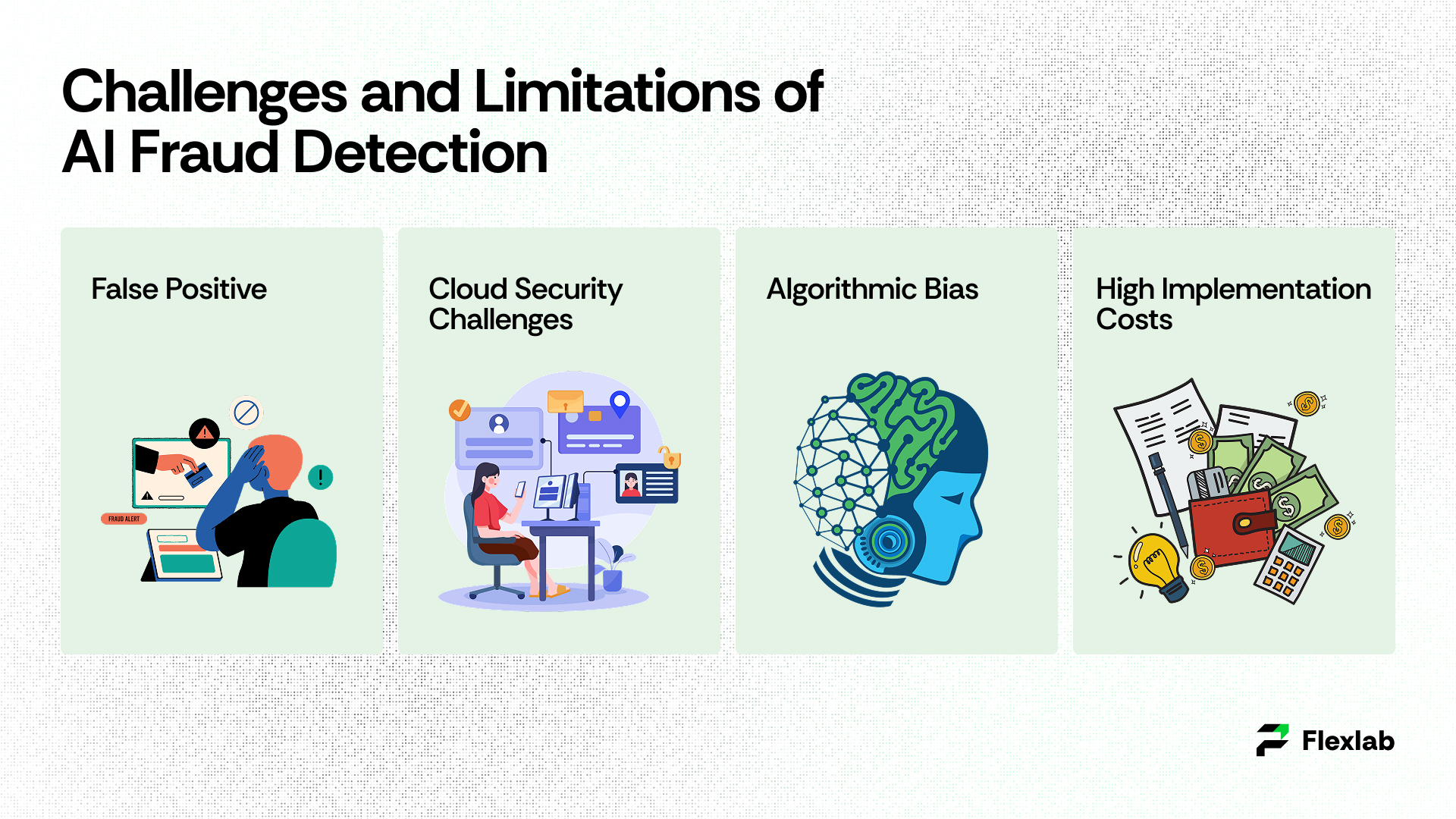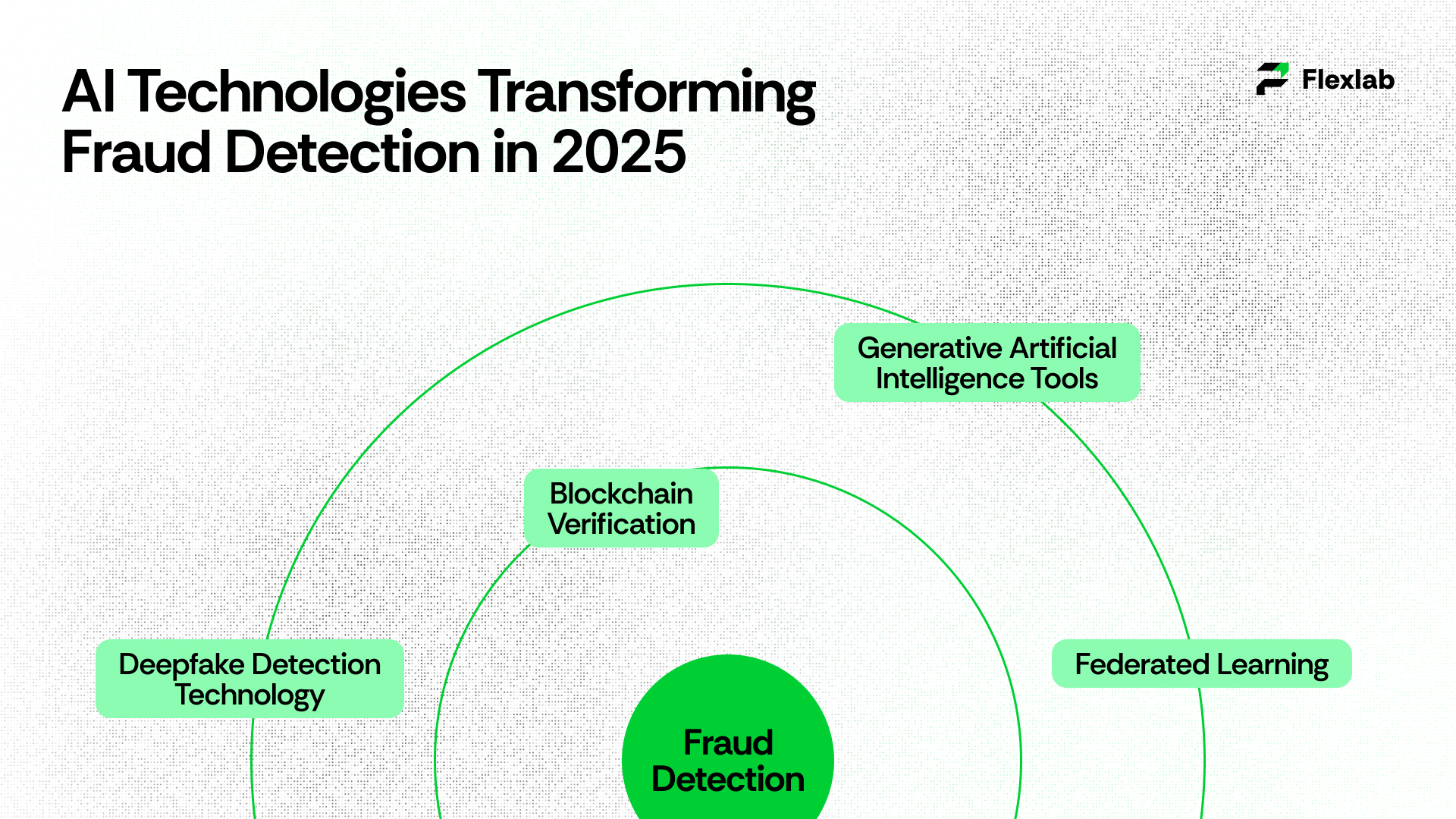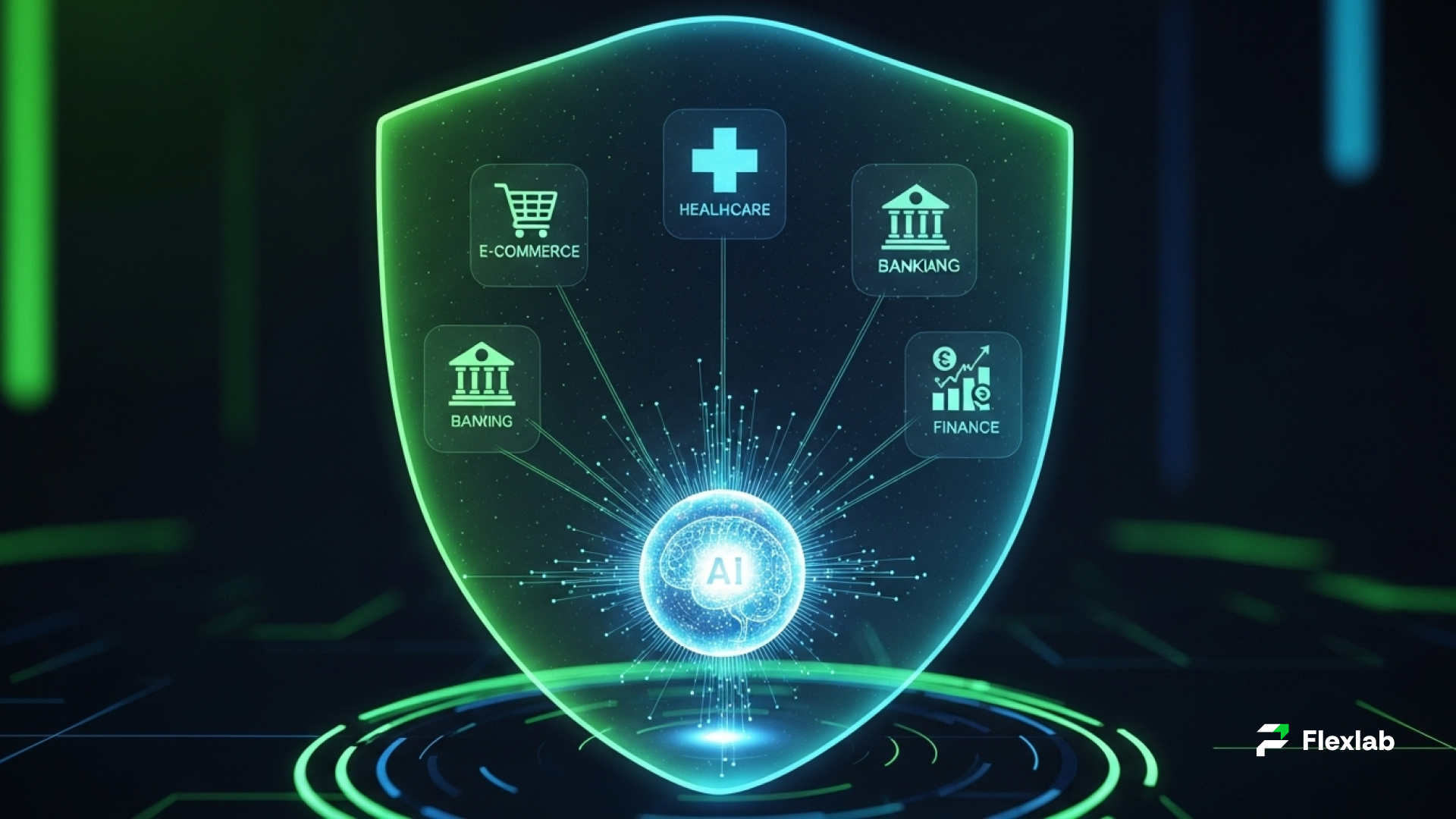AI Development for Beginners: How to Pick the Right Company
AI Trends | AI Revolution | Machine Learning Tools
Looking for the right AI development company to transform your business and stay ahead in today’s competitive market? With many of the fastest-growing AI companies leading innovation across industries, choosing the right partner ensures your project meets your goals, stays secure, and delivers real value.
This guide covers key steps like defining your needs, checking technical skills, and evaluating costs and communication—helping you choose the right AI development company with confidence.
Understanding AI App Development
AI App development is the process of creating software applications that use artificial intelligence technologies to perform tasks. This includes analyzing data, learning from it, making predictions, and responding intelligently to users. Developers incorporate AI algorithms and models into apps to give them these smart capabilities.
According to a Markets and Markets report, the global AI market was valued at $214.6 billion in 2024 and is projected to reach $1,339.1 billion by 2030, growing at a compound annual growth rate (CAGR) of 35.7%. This highlights the significant and growing impact of AI technologies across various industries.
In summary, it involves building intelligent applications powered by AI models, and the market for such technologies is experiencing impressive, fast-paced growth.
What Does an AI Development Company Do?
AI development companies help businesses use AI and ML technologies through custom software tailored to their needs. Moreover, these experts build intelligent systems that automate tasks, predict outcomes, and support better decisions.
-
AI Development Services
AI development companies specialize in creating intelligent systems that mimic human cognition and decision-making. These companies design custom AI models tailored to solve specific business challenges, such as automating complex workflows, enabling natural language understanding, or powering intelligent virtual assistants.
AI development often involves a broad range of technologies, including expert systems, computer vision applications, natural language processing techniques, and robotics. Leading AI development companies in the USA, such as Flexlab, emphasize delivering end-to-end AI solutions that integrate advanced analytics, intelligent process automation, and AI-driven optimization to transform business operations.
-
Machine Learning Development Services
On the other hand, ML development companies build systems that learn from data and improve performance without explicit programming. ML services enable businesses to analyze vast datasets, uncover hidden patterns, and make data-driven decisions.
This includes developing predictive analytics, recommendation engines, anomaly detection, and personalized marketing tools. U.S.-based companies like Flexlab are known for deploying scalable ML models in healthcare, finance, and cybersecurity.
While AI and ML are closely related—with ML being a subset of AI—the key difference lies in their focus. AI development companies build autonomous systems for complex reasoning, while ML firms focus on data-driven algorithms that learn from experience. Many top firms offer combined AI and ML services, using NLP, computer vision, and intelligent automation for end-to-end solutions.
Benefits of Hiring AI/ML Engineers
- Expertise in AI Software Development: When you hire AI developers, you bring in specialized professionals who design and implement effective AI-powered solutions tailored to your business needs.
- Advanced AI Model Creation: These experts create sophisticated AI models, including generative AI, enabling intelligent systems that learn, predict, and respond dynamically.
- Ongoing Support and Maintenance: Experienced developers ensure your AI systems stay updated with the latest technologies, maintaining reliability and scalability over time.
- Accelerated Innovation: Skilled specialists accelerate innovation by leveraging the latest AI technologies and models.
- Reduced Development Risks: These developers reduce mistakes and keep projects running smoothly.
- Improved Solution Quality: Enhancing the accuracy, efficiency, and performance of AI applications.
- Competitive Advantage: Bringing on board talented AI developers empowers businesses to stay ahead in rapidly evolving markets.
- Strategic Investment: Since AI is growing fast, hiring AI developers is a smart move for your company’s future.
Skills to look for in AI Software Developers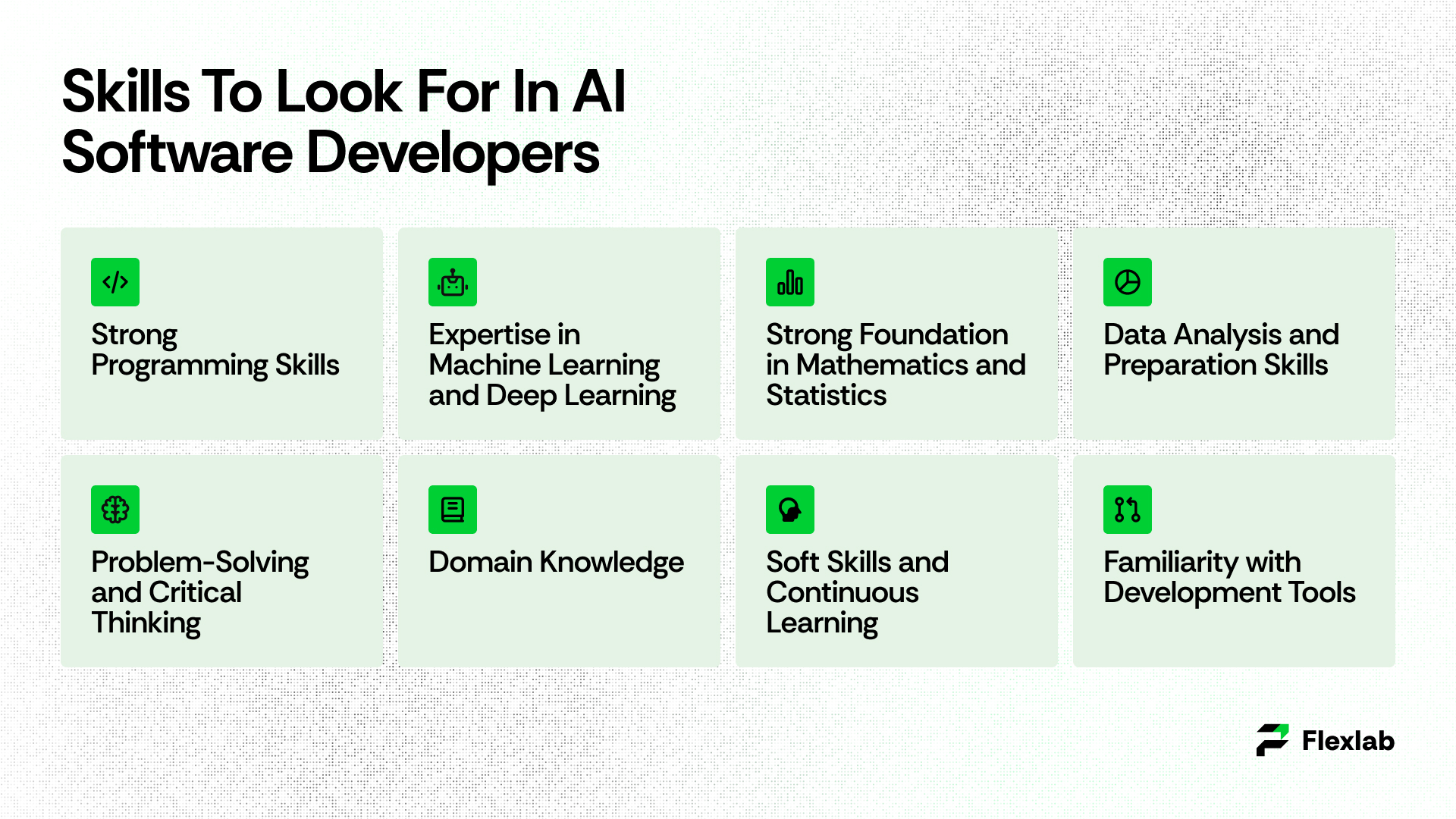
Here are the essential skills we need to look at the AI developers:
1. Strong Programming Skills
First, AI software developers must be proficient in programming languages such as Python, R, Java, or C++. These languages are widely used in AI development due to their rich libraries and frameworks. In addition, developers should be skilled at writing clean, efficient, and scalable code to build robust AI applications.
2. Expertise in Machine Learning and Deep Learning
A deep understanding of machine learning and deep learning algorithms is essential. In addition, developers should understand techniques like supervised and unsupervised learning, along with neural networks. Familiarity with frameworks such as TensorFlow, PyTorch, and Keras is also key to building and training AI models effectively.
3. Strong Foundation in Mathematics and Statistics
AI relies heavily on mathematical concepts like linear algebra, calculus, probability, and optimization. Developers need a solid grasp of these areas to design accurate and efficient algorithms. Proficiency in statistics helps in data analysis and interpreting model results correctly.
4. Data Analysis and Preparation Skills
Effective AI development requires skills in data cleaning, feature extraction, and statistical inference. Developers must be able to analyze and prepare datasets to ensure the AI models receive high-quality input for better performance.
5. Problem-Solving and Critical Thinking
AI projects often involve complex challenges. Additionally, developers need strong problem-solving skills and critical thinking to build innovative solutions and fix issues during development.
6. Domain Knowledge
Understanding the specific industry or domain where the AI solution will be applied adds significant value. For instance, AI developers in healthcare benefit from understanding medical terms and workflows, which helps them build practical solutions.
7. Soft Skills and Continuous Learning
Clear communication skills are essential for effective collaboration with teams and stakeholders. Additionally, ethical awareness is crucial to ensure responsible AI use. And since AI evolves rapidly, a willingness to learn and adapt continuously is key to long-term success.
8. Familiarity with Development Tools
Proficiency in tools like Jupyter Notebook for experimentation, Git for version control, and deployment platforms such as Docker and Kubernetes supports efficient development, collaboration, and deployment of AI applications.
The Growing Significance of AI Development for Businesses in 2025 and Beyond
Artificial intelligence (AI) has become a critical driver of business growth across industries, from finance to technology startups. Ultimately, regardless of company size or sector, AI adoption is reshaping how businesses operate, innovate, and compete in today’s marketplace.
Remarkably, recent data shows that 78% of global companies now use AI in at least one business function—a sharp rise from just 20% in 2017. This widespread adoption reflects AI’s ability to enhance operational efficiency, automate complex tasks, and unlock new growth opportunities. For example, 75% of entrepreneurs report that AI has helped them explore new avenues for business expansion.
Small businesses are also embracing AI, with 29% having already integrated AI technologies into their workflows, primarily to improve marketing, customer service, and content creation. Meanwhile, 91% of top enterprises have ongoing investments in AI, underscoring its strategic importance at the highest levels of business.
The global AI market is projected to grow at a compound annual growth rate (CAGR) of approximately 35.7% between 2024 and 2030, reaching an estimated value of $1.34 trillion by 2030. Driven by innovation, this rapid expansion is fueled by advances in generative AI, natural language processing, and machine learning, enabling businesses to solve complex problems and deliver personalized customer experiences.
BLOCKCHAIN DEVELOPMENT TRENDS 2025
Ethical AI practices and data security are becoming increasingly important as AI adoption grows, ensuring responsible use and maintaining customer trust.
One of the key areas where AI is making a significant impact is software engineering, where it is reshaping how applications are developed and maintained.
The Future of AI and Software Engineering
AI is transforming software engineering by automating routine tasks like writing tests, finding bugs, and suggesting code improvements. This allows developers to focus on complex problems and boosts productivity. Tools like GitHub Copilot already help by providing real-time code suggestions. As a result, AI-driven automation also improves software quality and speeds up development.
In the future, developers will be able to create software using natural language instructions, making development more accessible to a wider range of people. As AI becomes more integrated into software engineering, ethical and security concerns will be key to ensuring responsible and safe use.
Overall, the future of AI will reshape software development, making it faster, smarter, and more efficient, driving innovation across industries.
7 Steps to Choose the Best AI Software Development Company
Here is a step-by-step guide to help you choose the right AI development company:
Step 1: Identify Your Project Requirements
To begin with, clearly define your project requirements before searching for the right AI development company. Whether you need generative AI services, custom web app development, or marketing automation, identifying your needs early is key. This will help you choose a company that aligns with your goals and delivers tailored solutions.
Step 2: Research and Shortlist AI Development Companies
Next, it’s time to search for AI software development companies and consulting firms with expertise in your specific area. You can explore company websites or seek recommendations from professionals and industry colleagues. Create a shortlist of companies that fulfill your project requirements.
Step 3: Assess the Technical Skills
Now start evaluating the technical capabilities of the shortlisted companies to whom you’re considering for your project. Given that different companies use different AI tools, frameworks, and programming languages, you need to verify which technical expertise aligns with your specific needs.
To ensure the right fit, you can review their previous work through case studies and portfolios, understand their software development methodologies, and seek feedback from their past clients. This thorough evaluation helps ensure you choose a company capable of delivering quality results for your project.
Step 4: Consider Industry Experience
To make the right choice, consider both industry experience and technical skills when selecting an AI development company. Companies familiar with your sector—be it finance, healthcare, or retail—understand unique challenges and regulatory requirements. For example, if you need generative AI solutions, selecting a company with relevant expertise ensures customized, effective results.
Indeed, industry knowledge enables tailored solutions aligned with your business goals, rather than generic tools. Such companies understand industry data, workflows, and compliance, helping build reliable AI models, reduce risks, and accelerate outcomes. Moreover, experienced firms bring together data scientists and domain experts who adapt to evolving needs, stay current with tech trends, and offer strategic guidance. According to Stanford research highlights that successful AI projects often involve developers working closely with domain experts and understanding business context, resulting in better collaboration and impactful solutions.
Step 5: Analyze Data Handling and Security Measures
When choosing an AI software development company, it’s crucial to assess how they handle data and protect security. After all, AI projects often involve sensitive information, making strong safeguards essential. These include encryption, anonymization, and collecting only the data needed—followed by secure deletion when it’s no longer required.
Look for strict access controls such as role-based access and multi-factor authentication, along with regular security audits. Compliance with US regulations like CCPA or HIPAA and certifications like ISO 27001 indicate a strong commitment to data privacy. Additionally, AI-specific protections against attacks and transparent data processing build trust and ensure safe, compliant Artificial Intelligence solutions.
Step 6: Consider Communication and Collaboration
Good communication is essential for a successful AI development project. Choose a company that communicates openly and uses tools like Slack, Zoom, or Teams to keep you regularly updated. Clear and open communication helps avoid misunderstandings and keeps the project on track.
Additionally, make sure the company assigns a dedicated project manager or point of contact. This person will coordinate between your team and the developers, respond to concerns quickly, and ensure your feedback is considered. Clear communication and strong collaboration lead to better results and a smoother development process.
Step 7: Evaluate the Cost of AI Development Services
AI development costs depend on the project’s complexity, required features, and the expertise of the team. Hourly rates in the U.S. typically range from $24 to $49, with average projects costing between $10,000 and $50,000. Always ask for a detailed cost breakdown to understand what you’re paying for.
However, when comparing companies, don’t just focus on the lowest price. Consider the quality of work, experience, and support offered. Investing in a reliable AI partner ensures a solution that delivers real value and grows with your business.
How can Flexlab Help You with AI Development?
Flexlab makes AI development simple, fast, and reliable, helping your business solve problems right at your fingertips. They offer full-cycle AI solutions that automate your operations, boost profits, and cut costs—all tailored to your unique needs.
Whether you want to build smart apps, use machine learning, or integrate AI into your existing systems, Flexlab’s expert team handles everything from planning to deployment with guaranteed quality. Moreover, their easy-to-use tools let both developers and non-technical users build and launch AI-powered apps quickly.
With Flexlab, you get dedicated support, strict security, and scalable solutions that grow with your business, ensuring success without hassle or delay. So, check out our portfolio and contact us now to discuss your business growth and discover why partnering with us is a decision you’ll never regret!
Conclusion: Right AI Development Company key to Success
Choosing the right AI development company is key to the success of your AI project. By following these steps—defining your needs, assessing technical skills and industry experience, ensuring strong data security, and lastly, evaluating communication and cost—you can confidently choose the right AI development partner. You can find a trusted partner who delivers secure, innovative, and effective AI solutions tailored to your business. The right company will help you stay competitive, reduce risks, and maximize your AI investment. What are you waiting for? Explore our LinkedIn for the latest updates.
FAQs
Q1: What should I look for when selecting an AI development company?
A: Look for a company with industry experience, a strong AI project portfolio, up-to-date technical skills, and a transparent, collaborative approach. Also, ensure they follow strict data security and privacy standards.
Q2: Why is industry experience important in an AI development partner?
A: Specifically, industry experience means the company understands your sector’s unique challenges, workflows, and compliance requirements. This allows them to deliver tailored AI solutions that meet your needs and drive project success.
Q3: How can I evaluate the technical skills of an AI development company?
A: Review their case studies, client testimonials, and the technologies they use (like Python, TensorFlow, PyTorch, etc.). Additionally, ask if they have experience with similar projects, and request a technical interview or proof of concept if needed.
